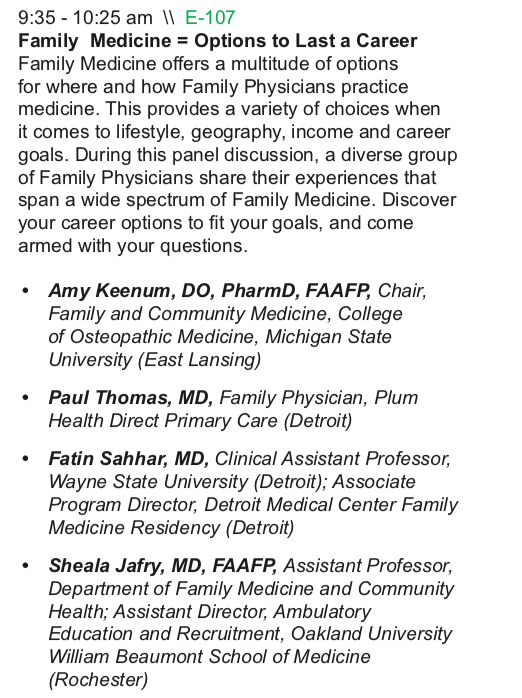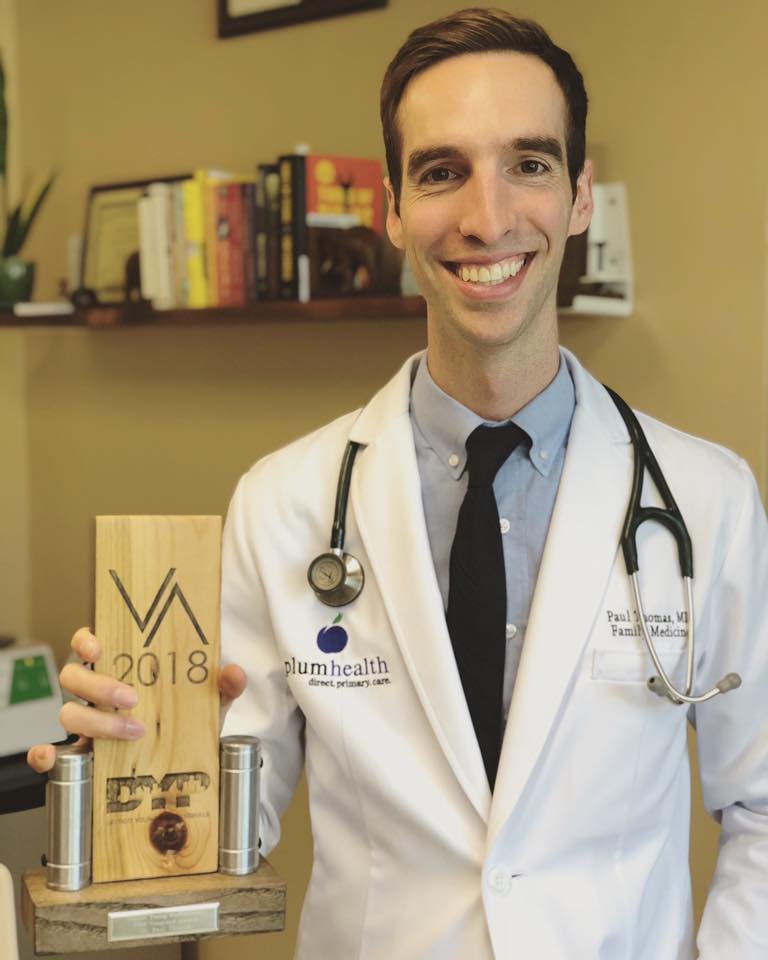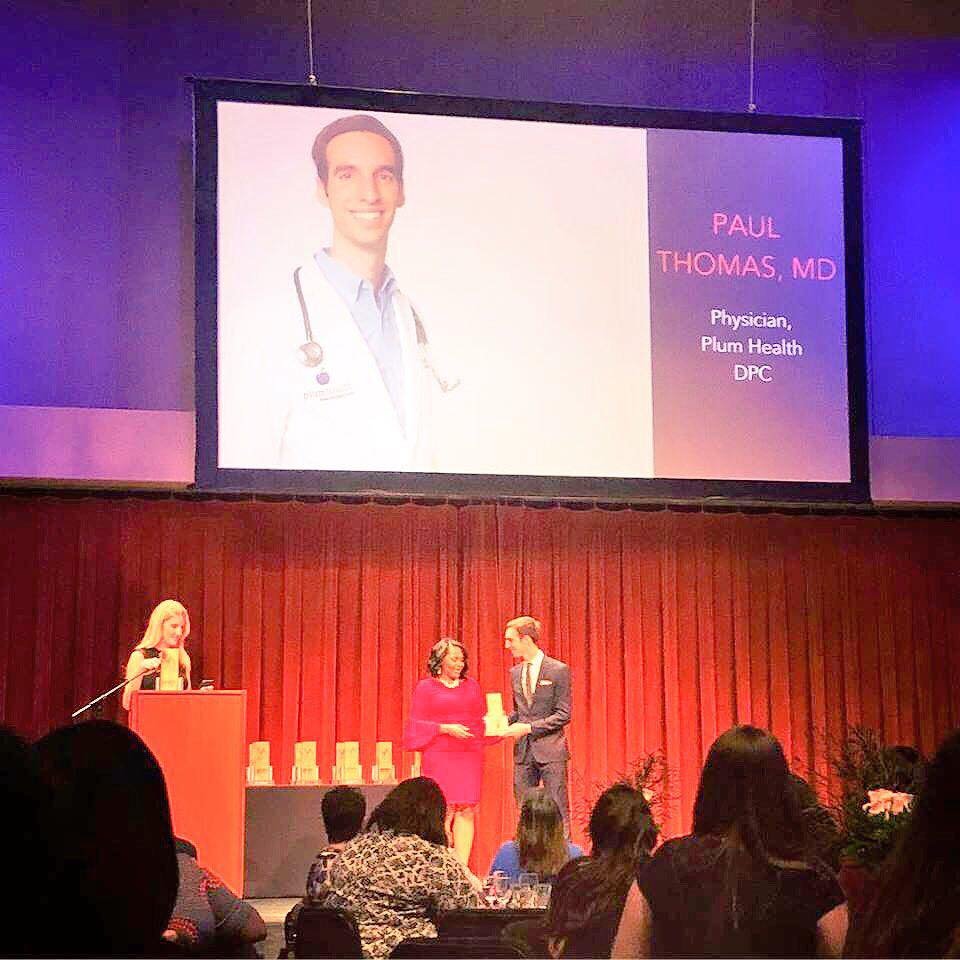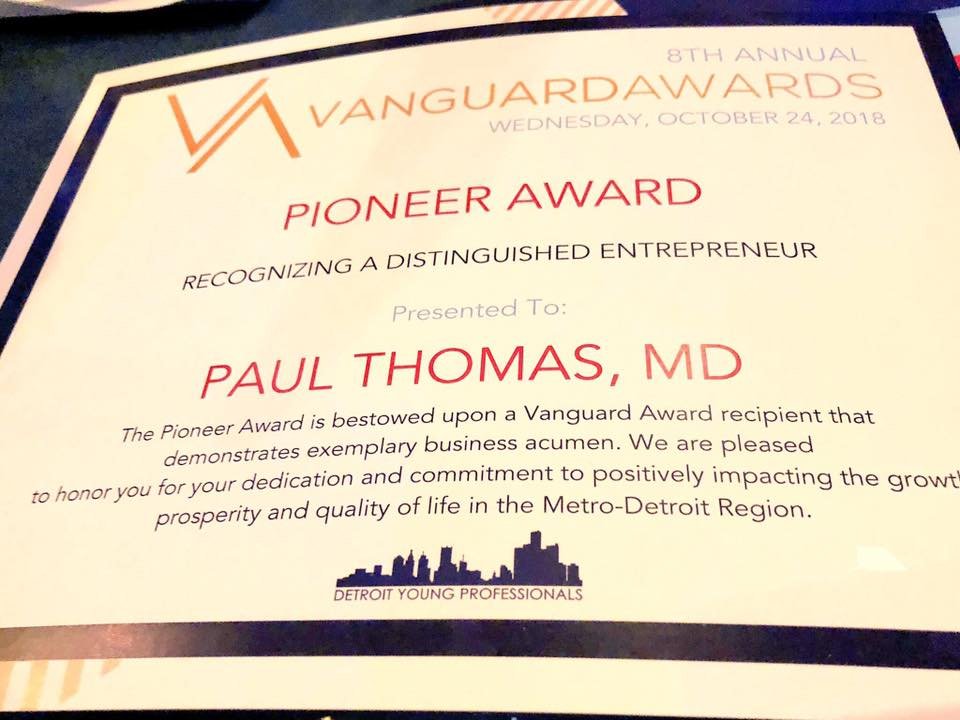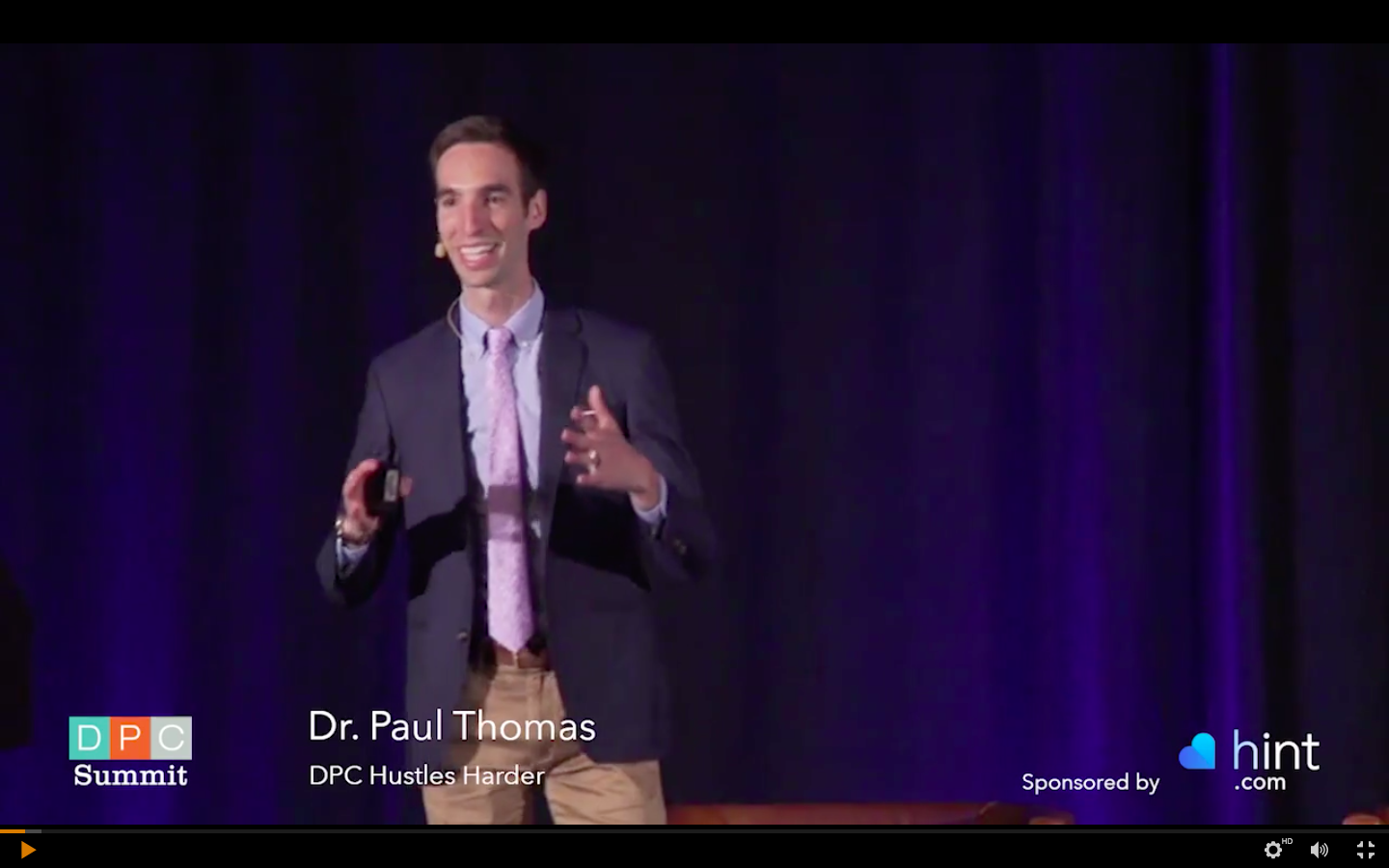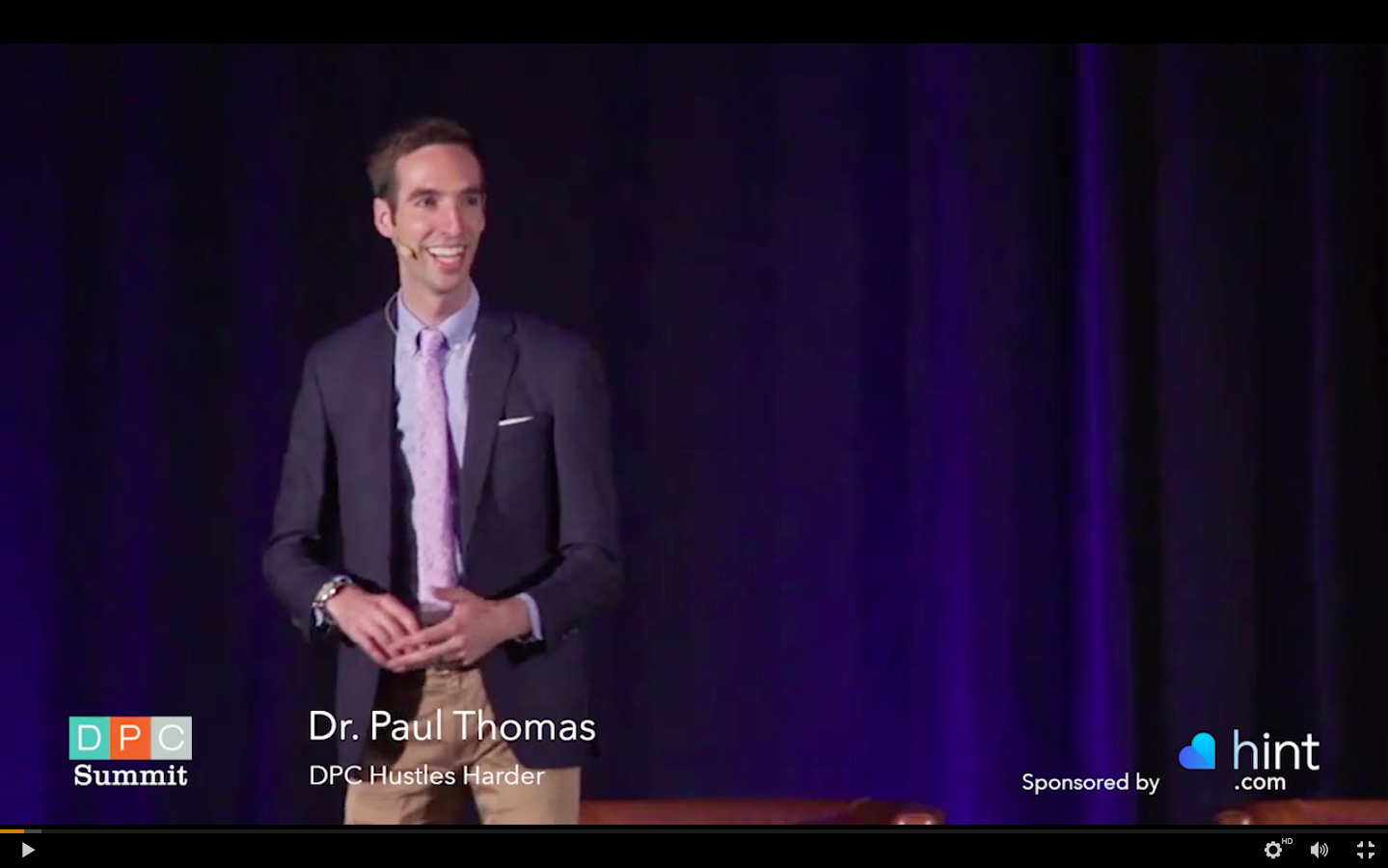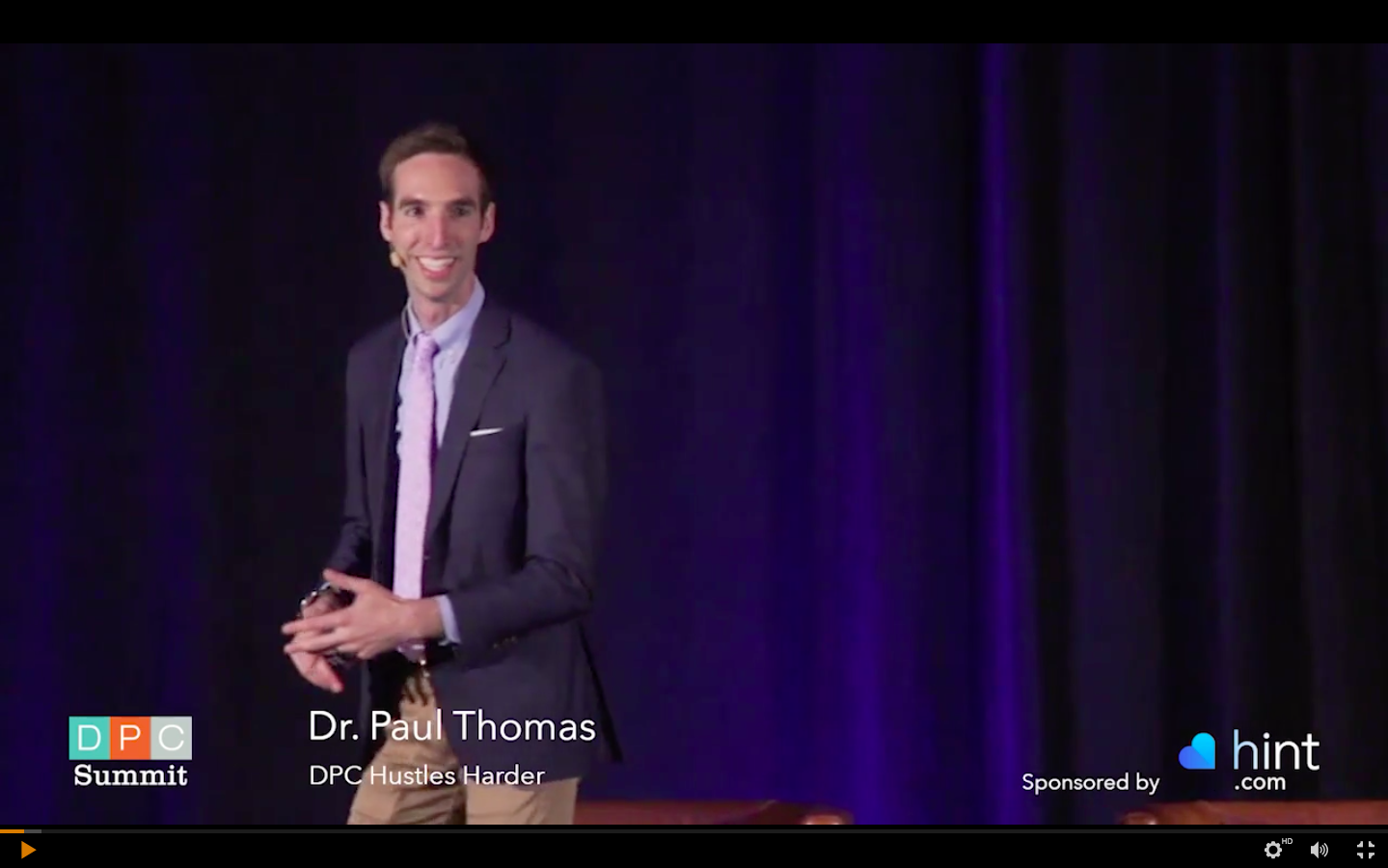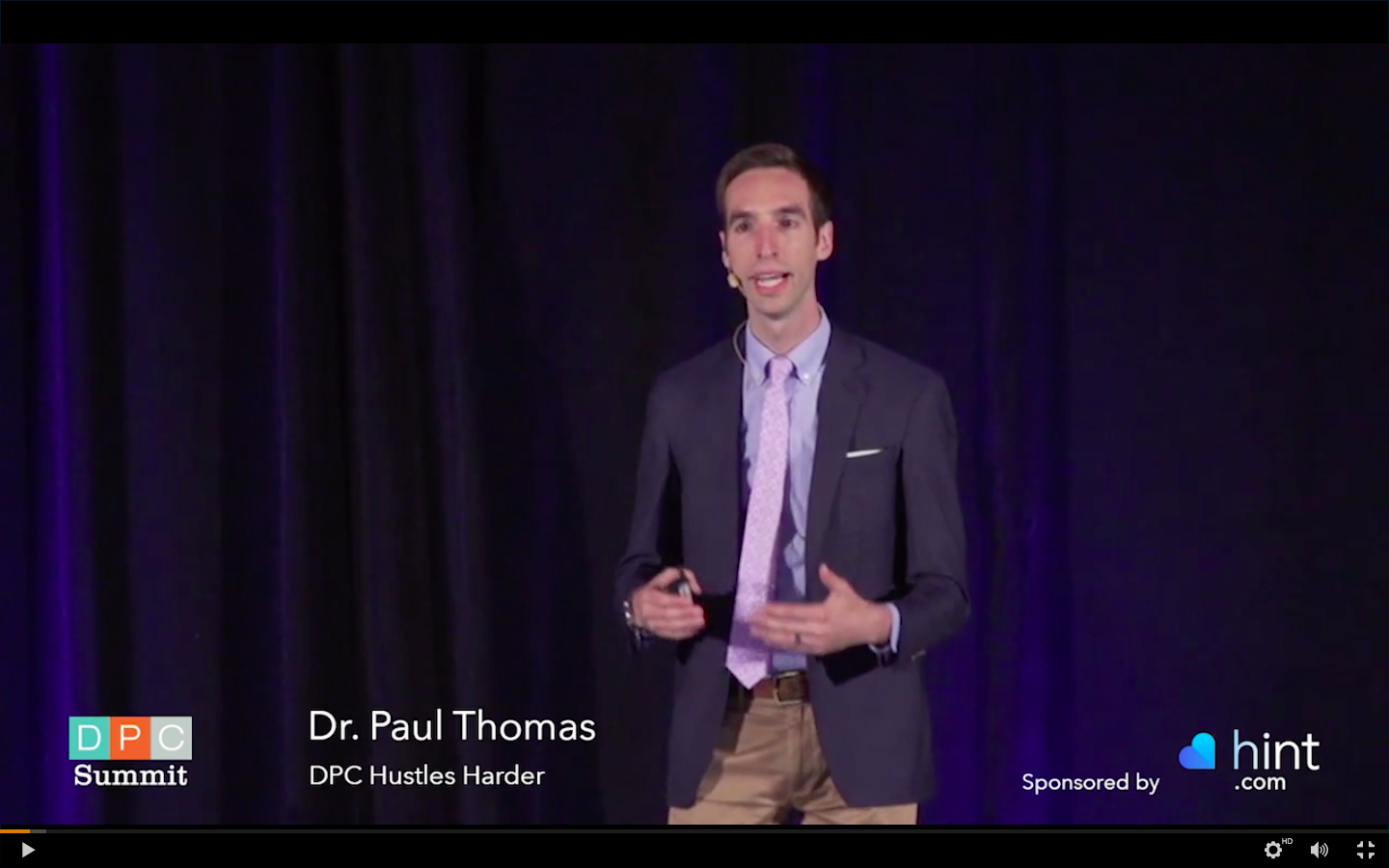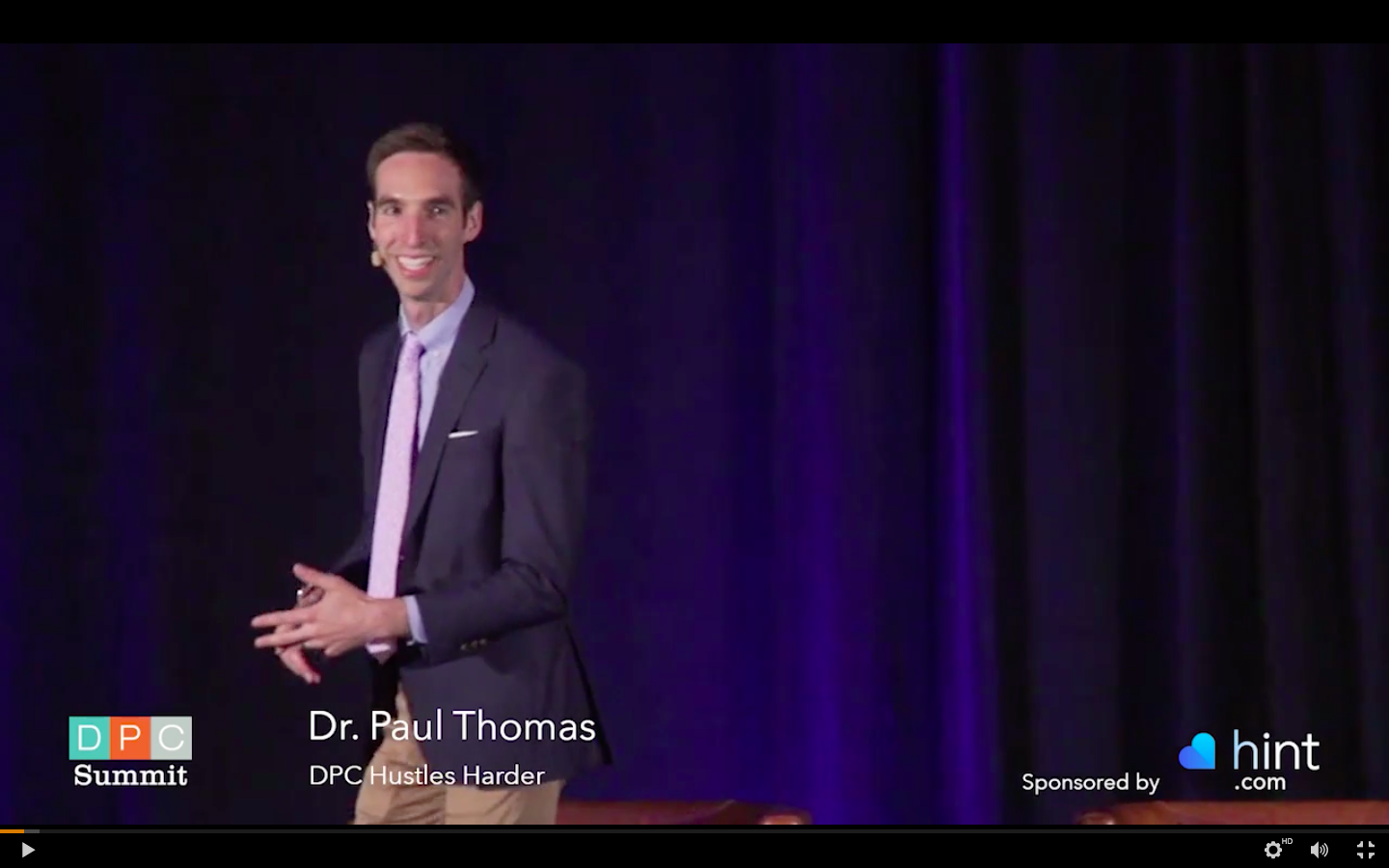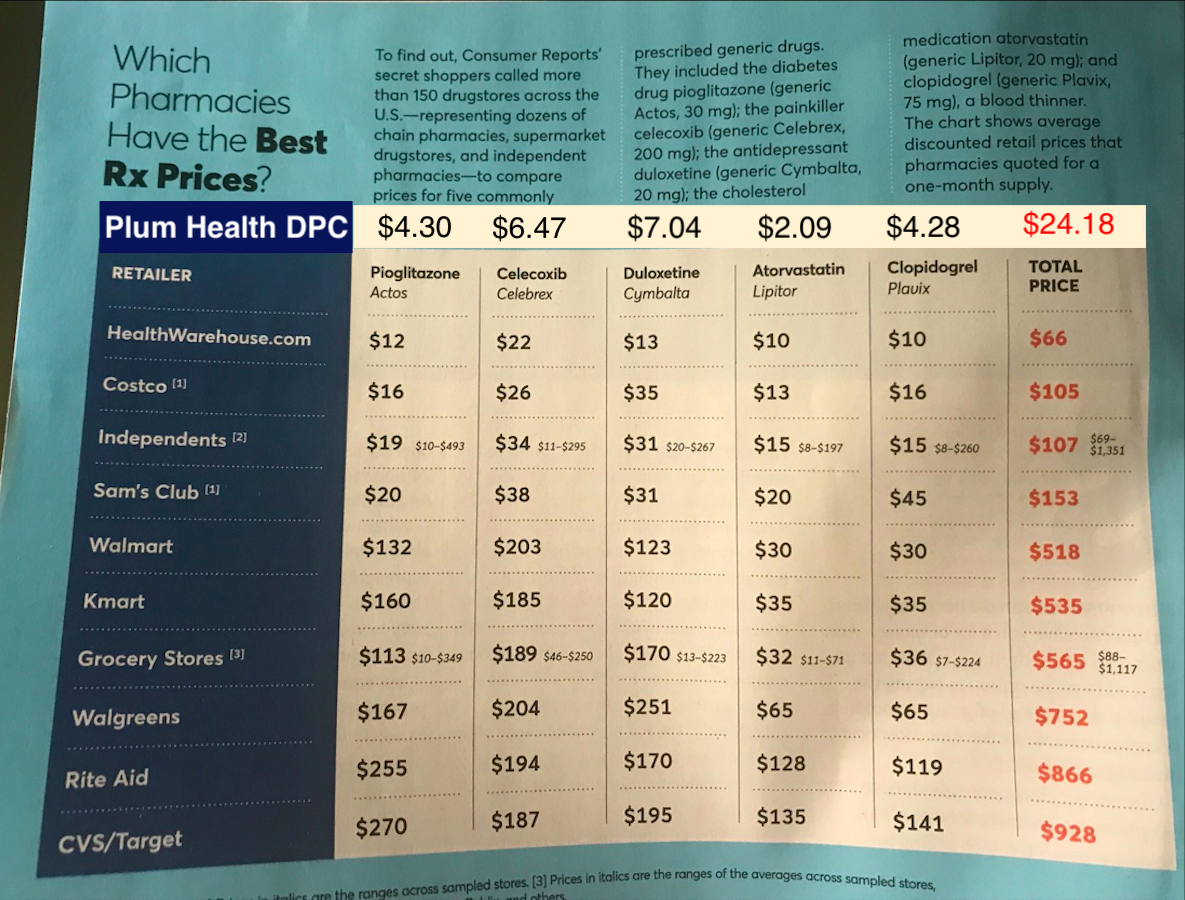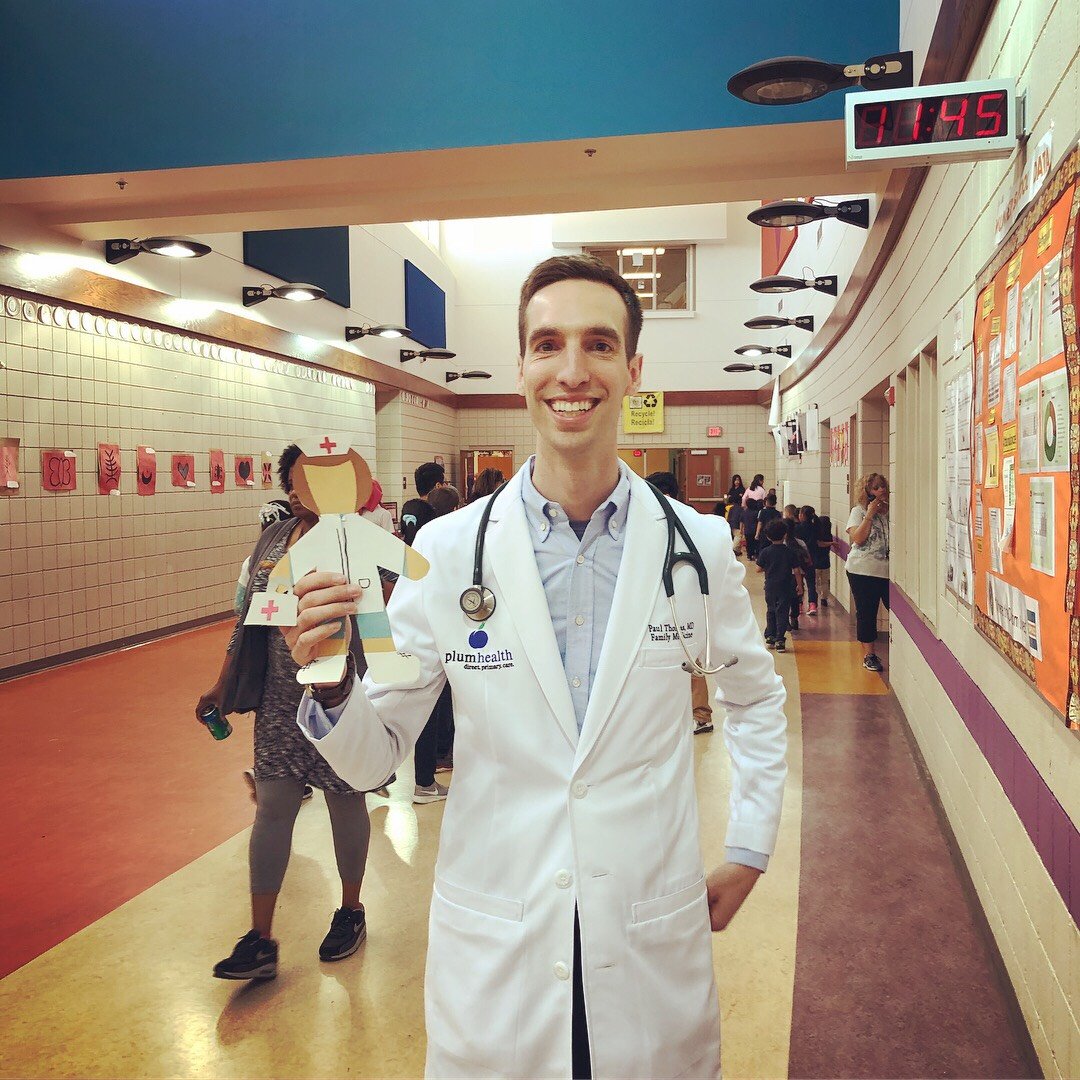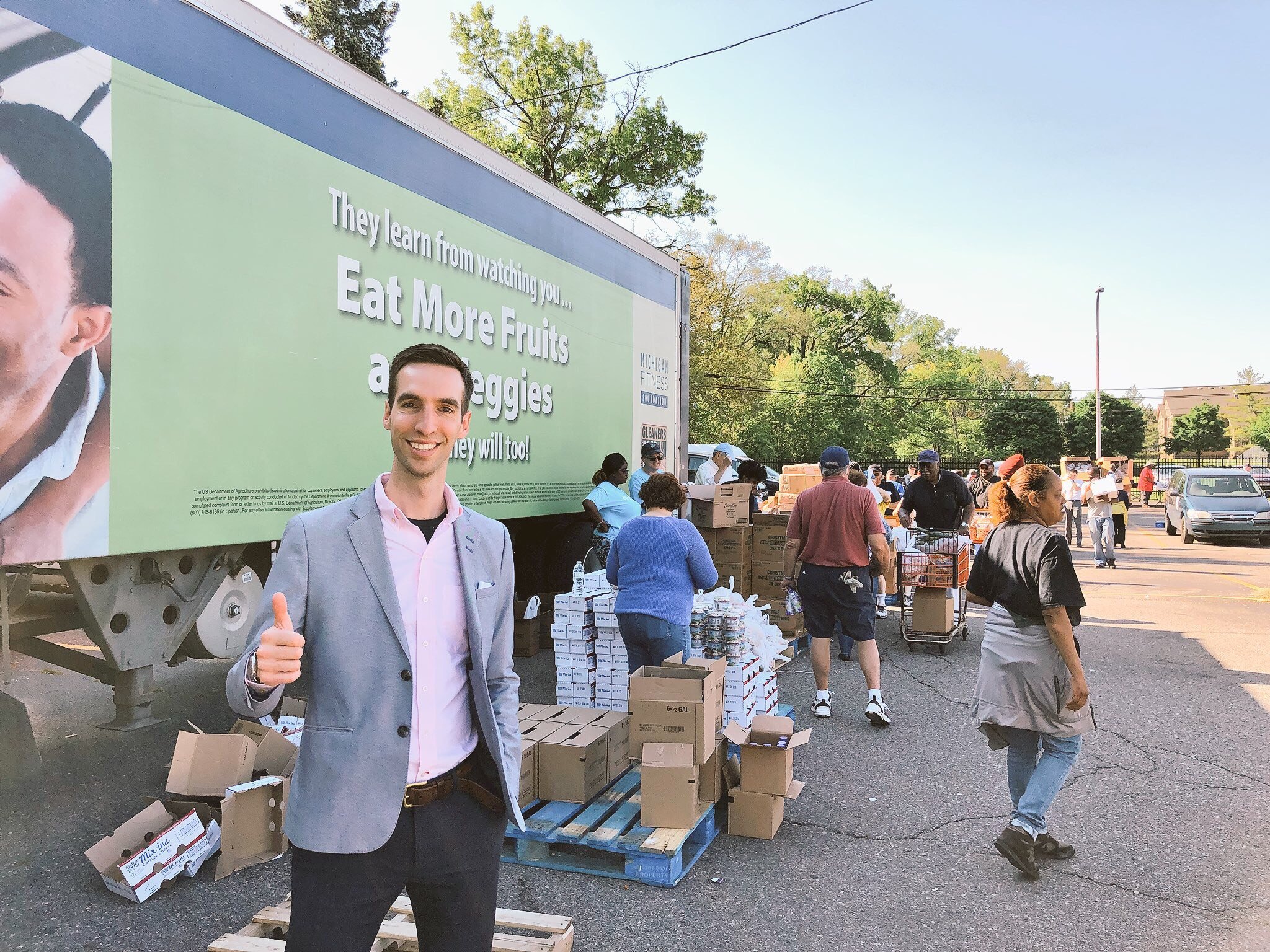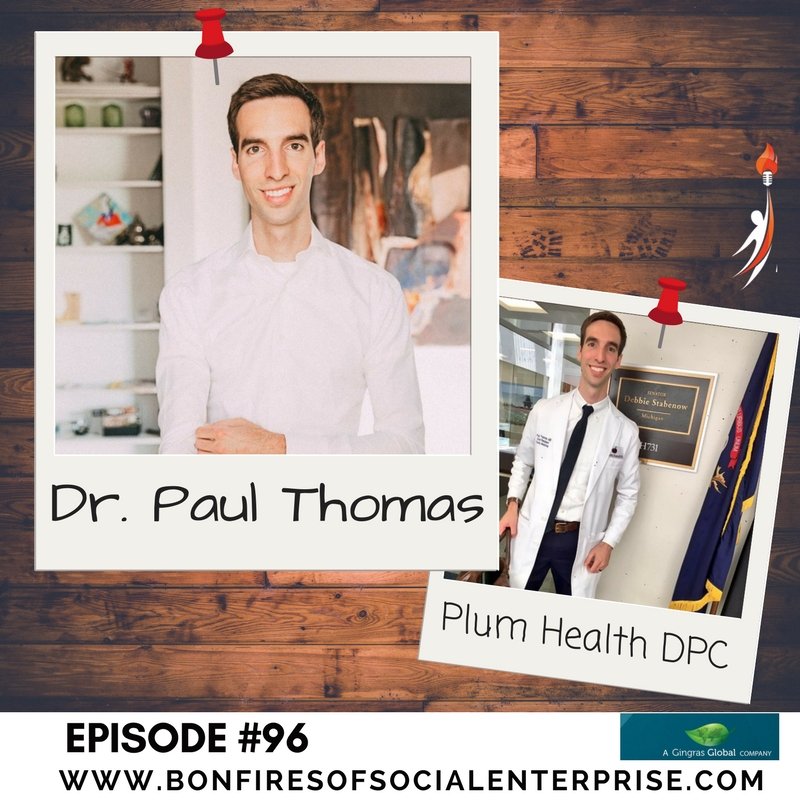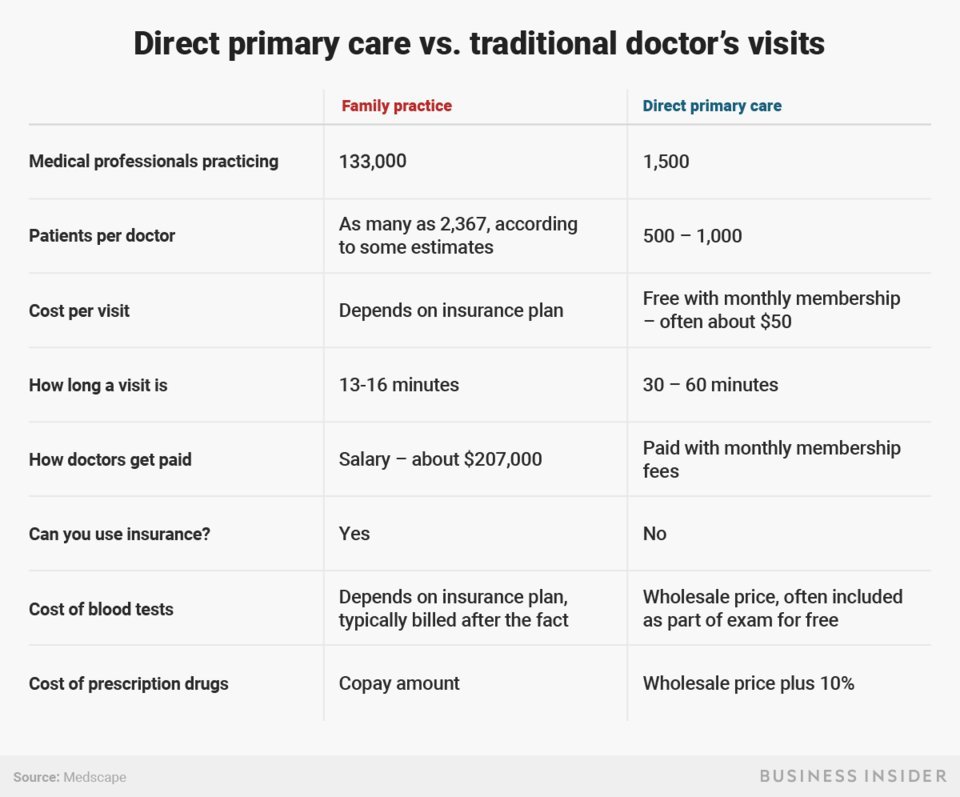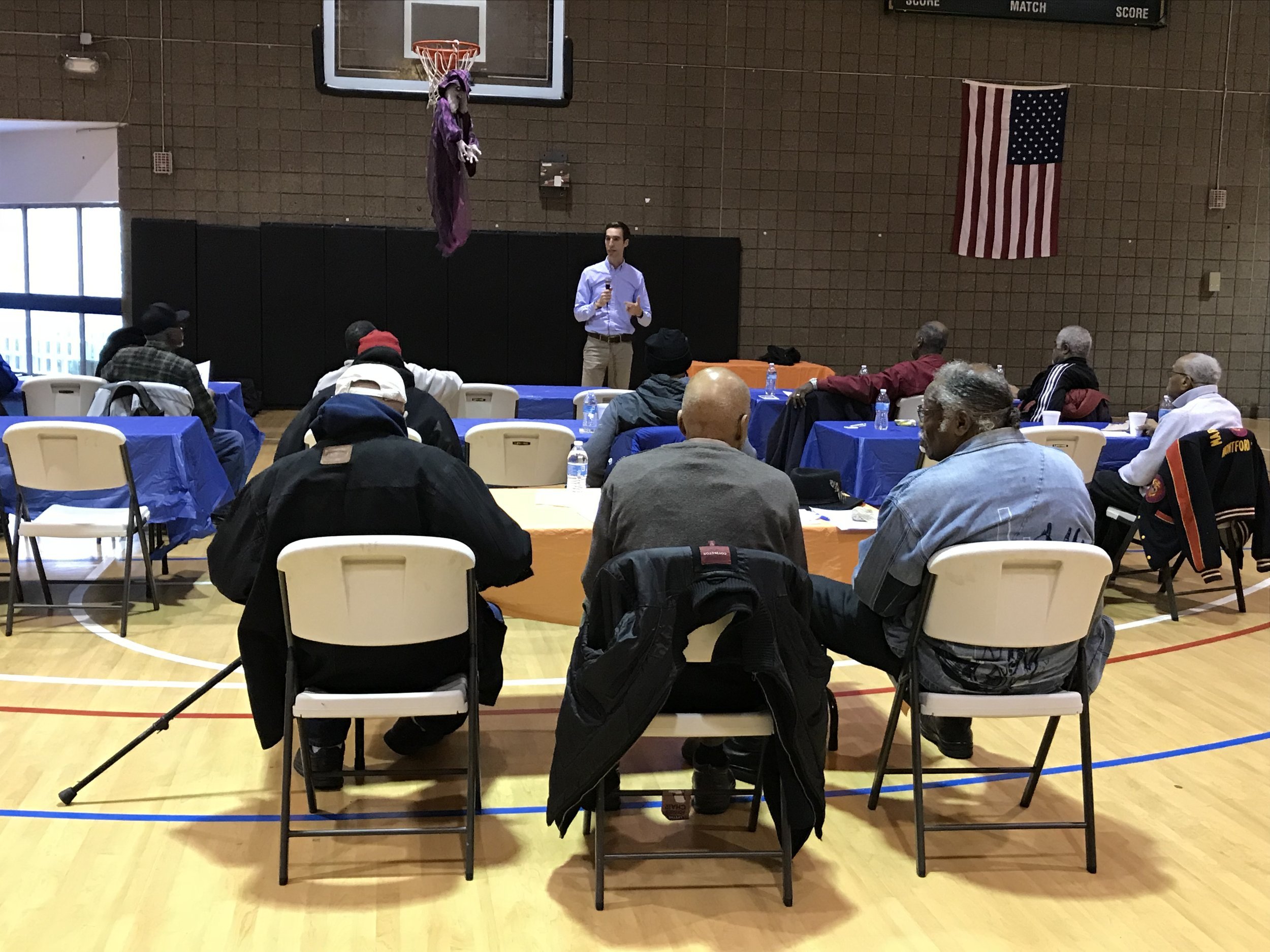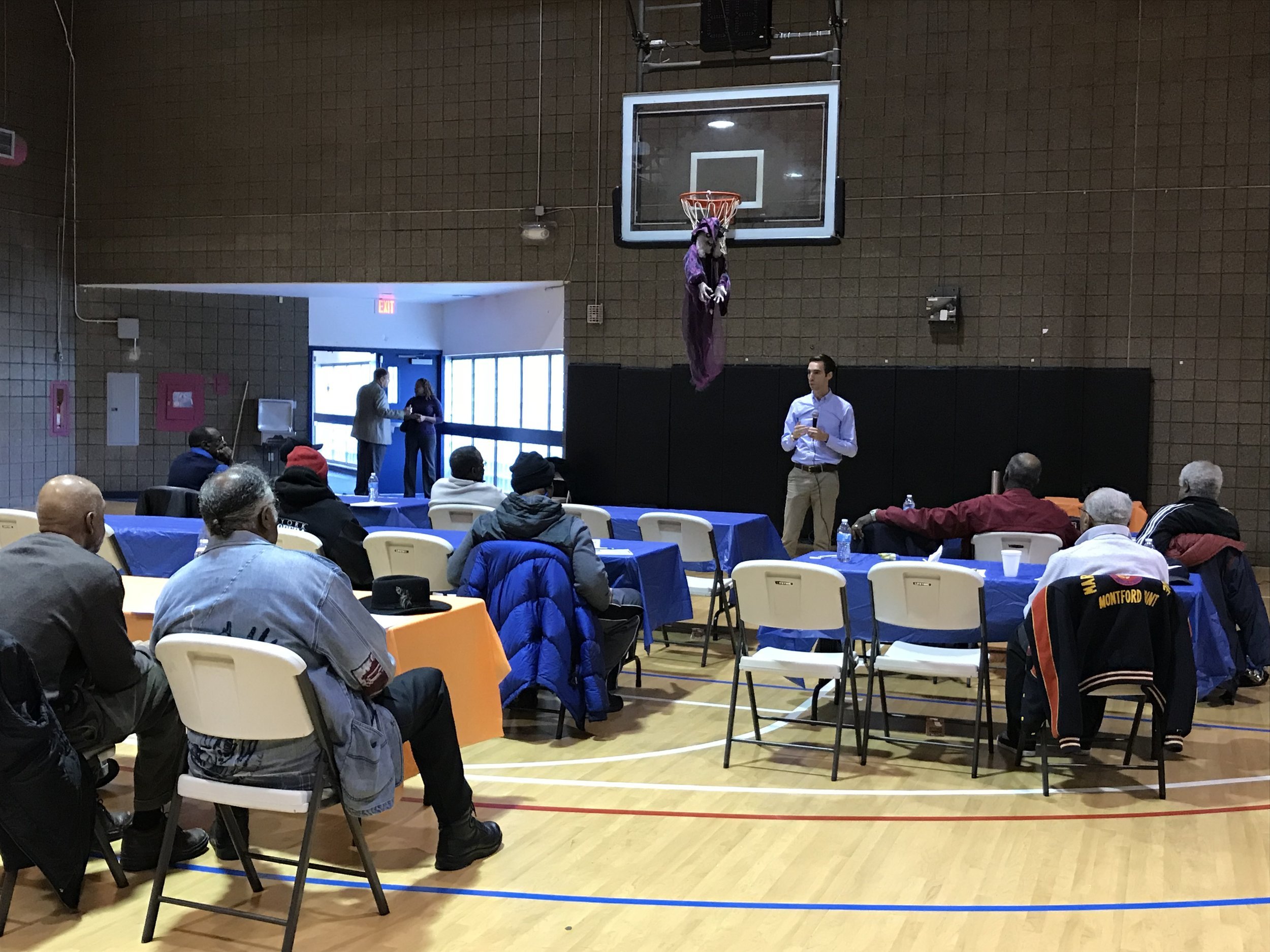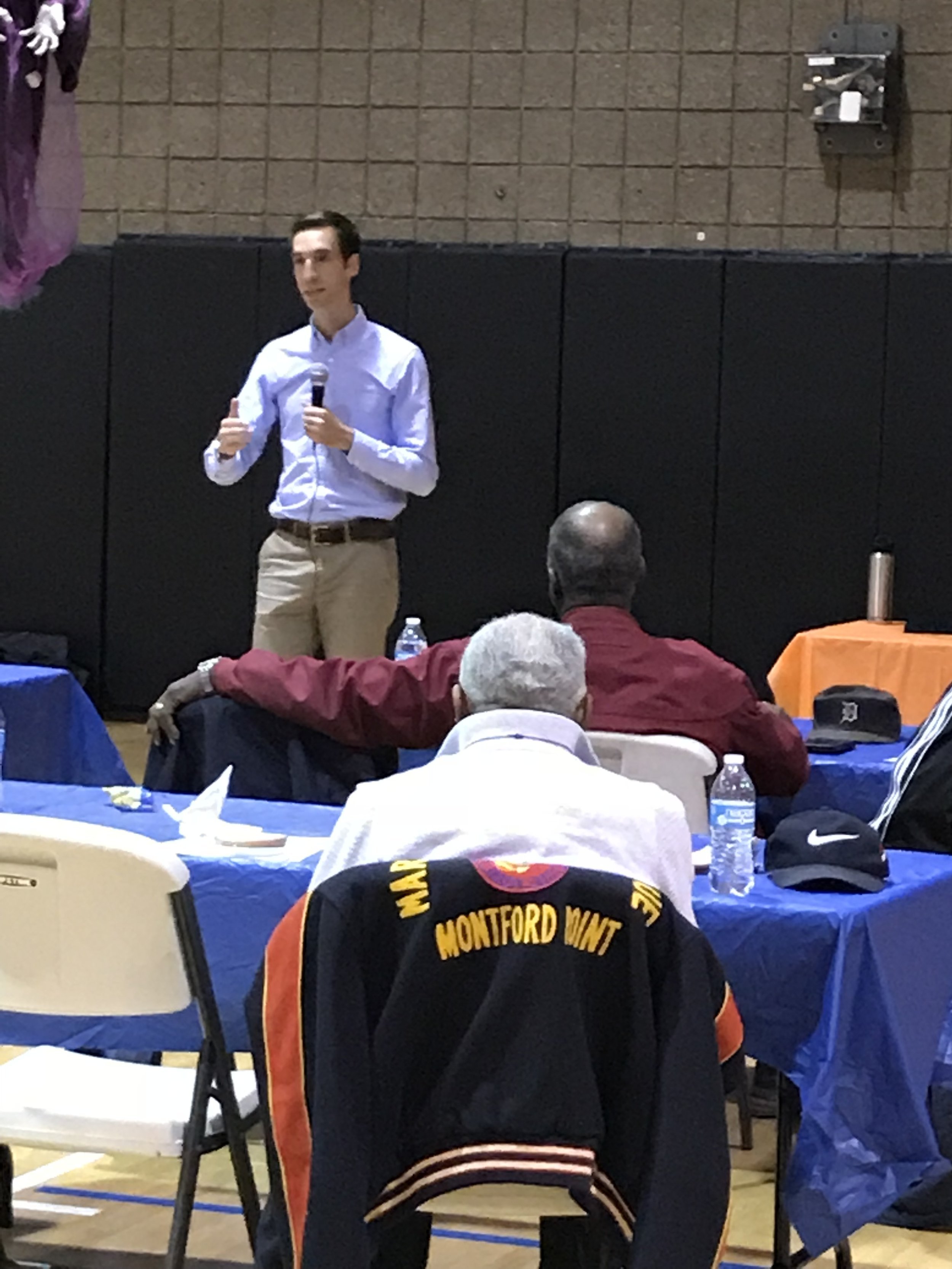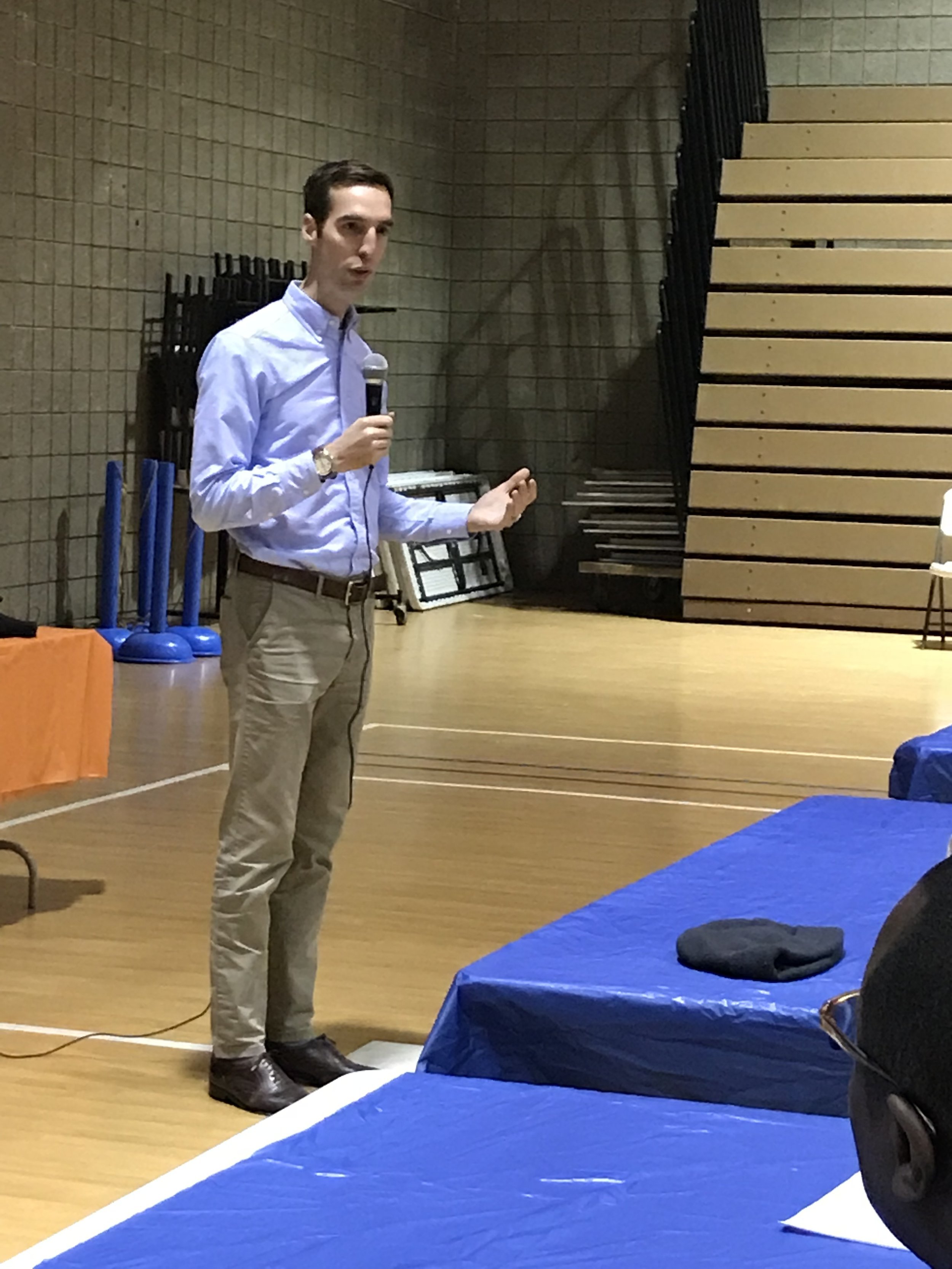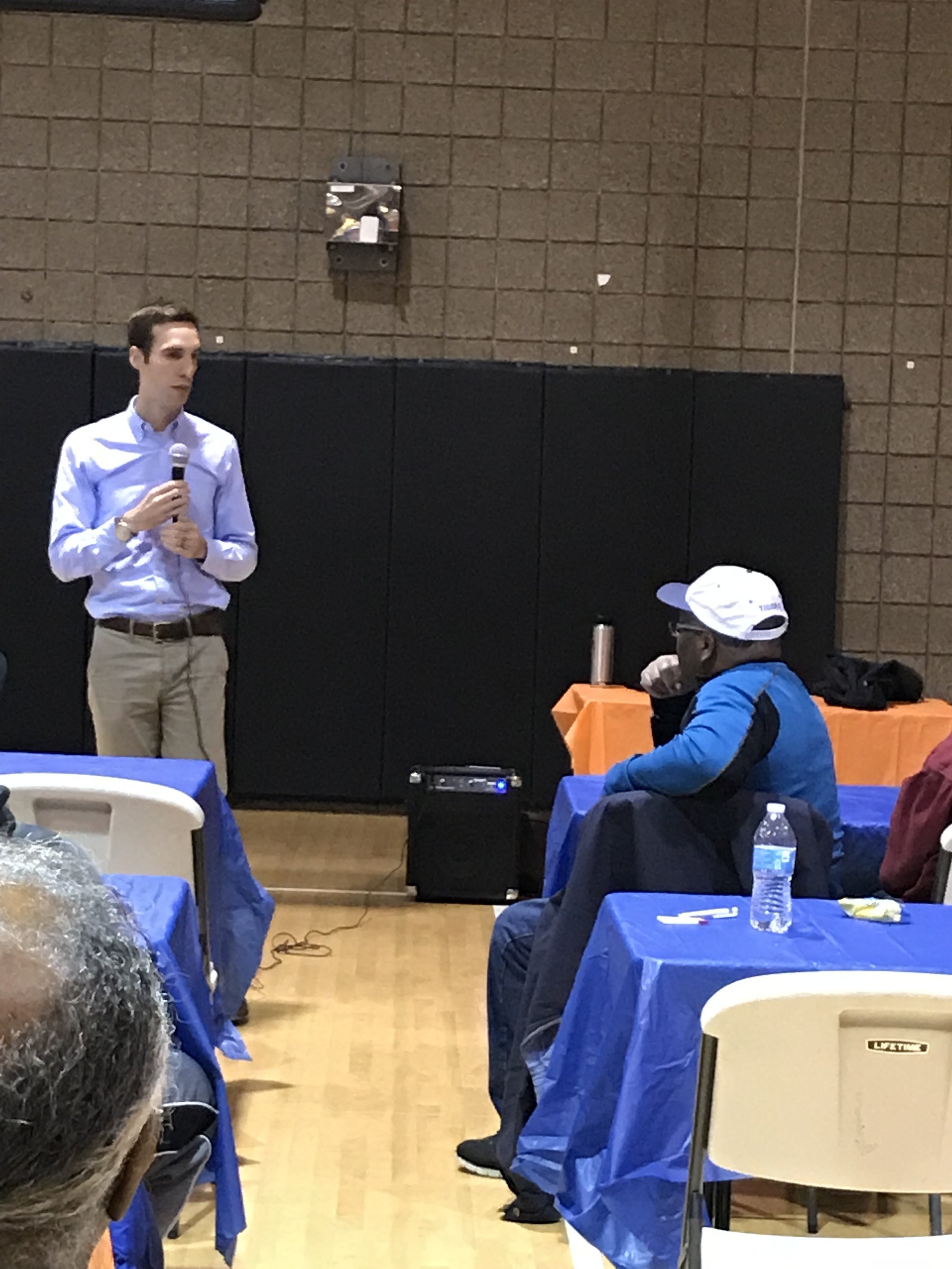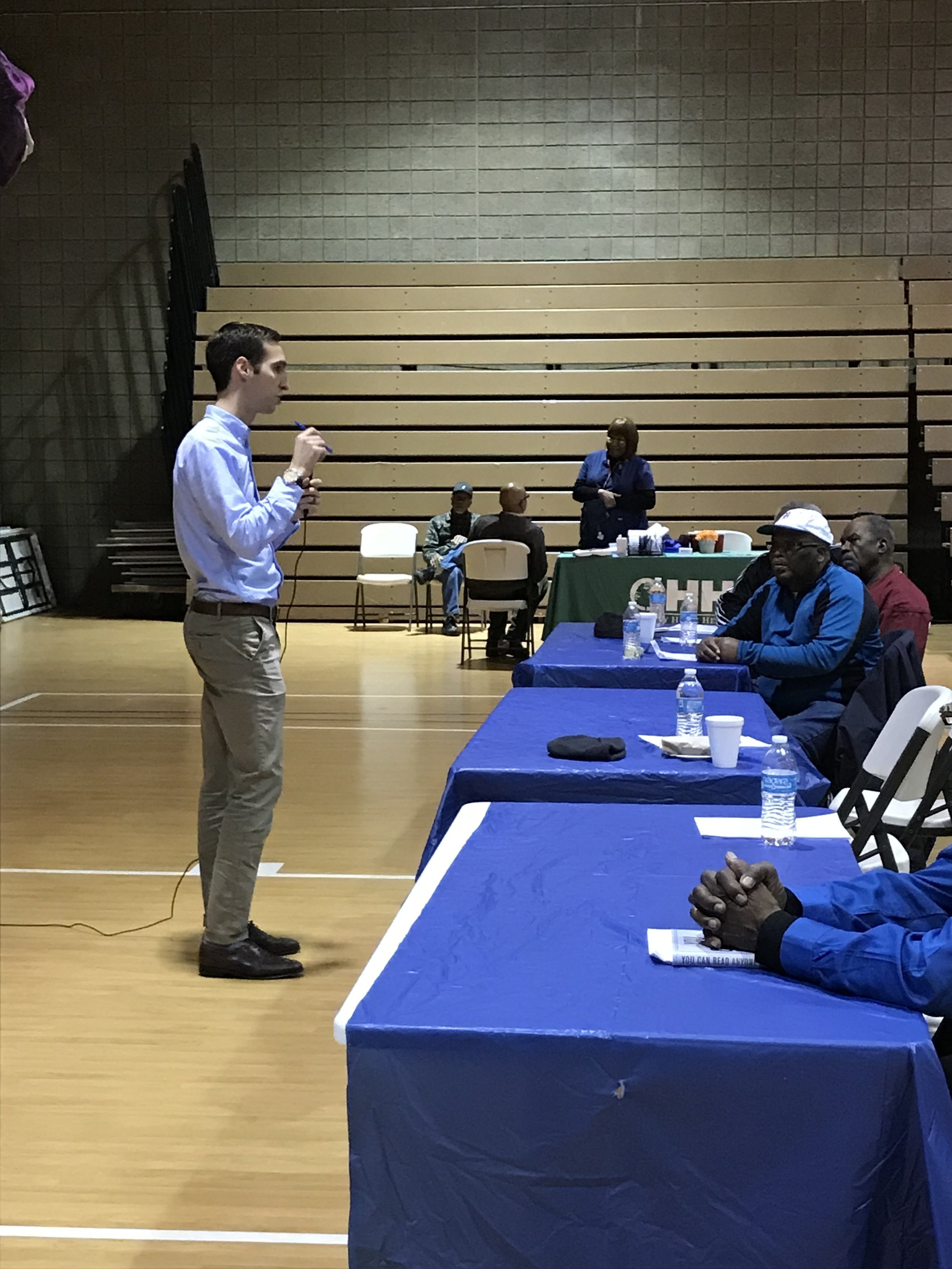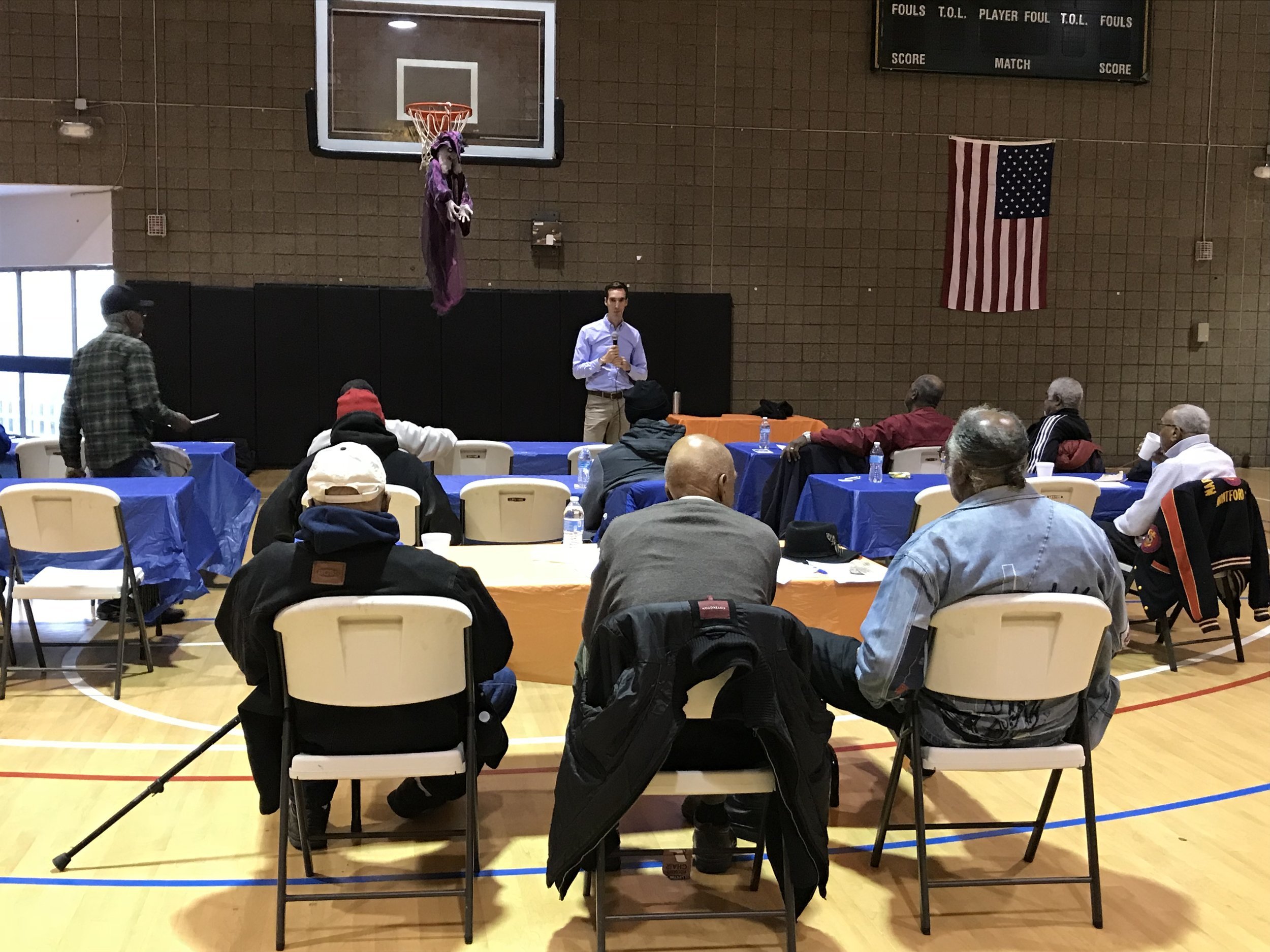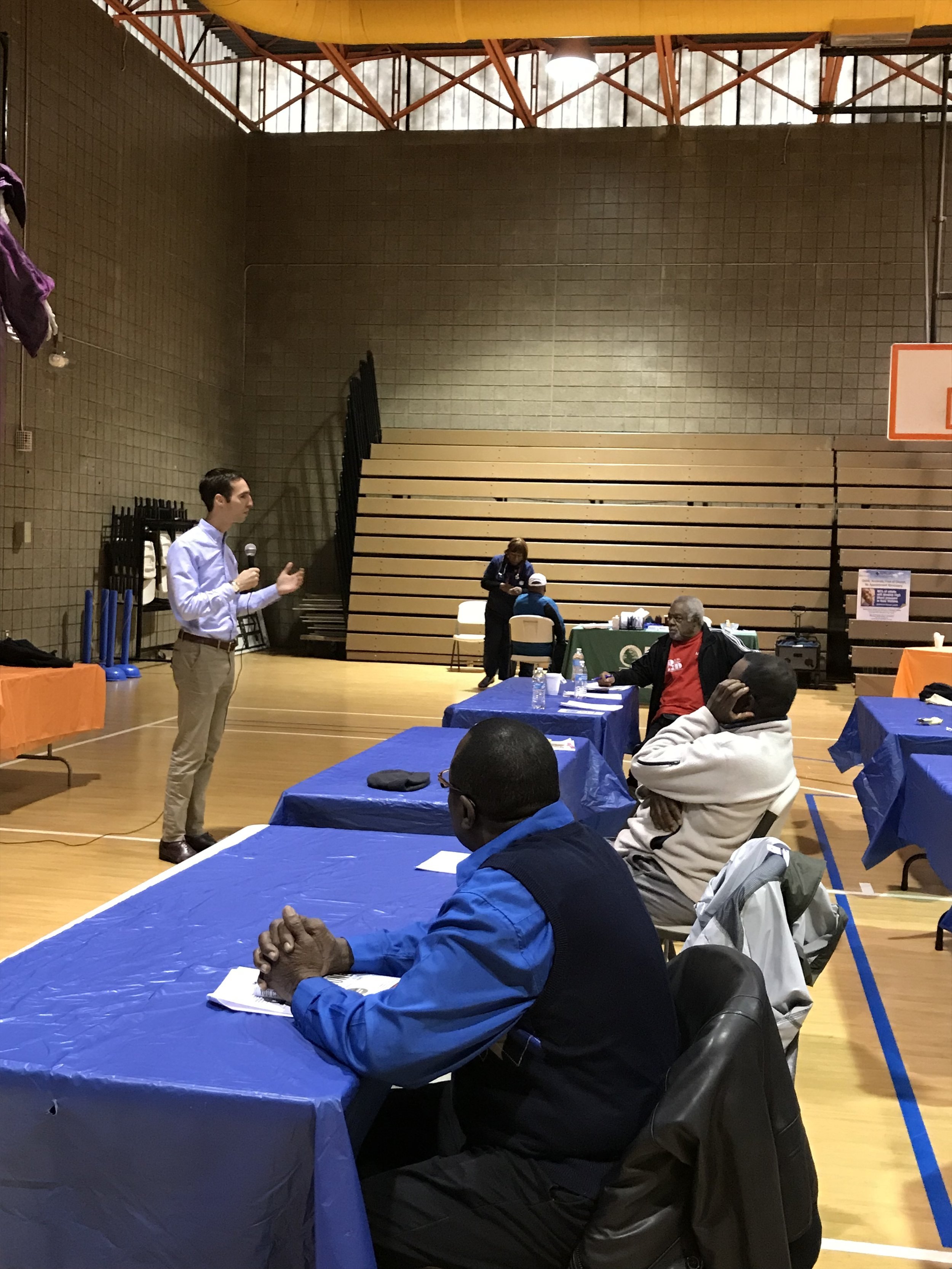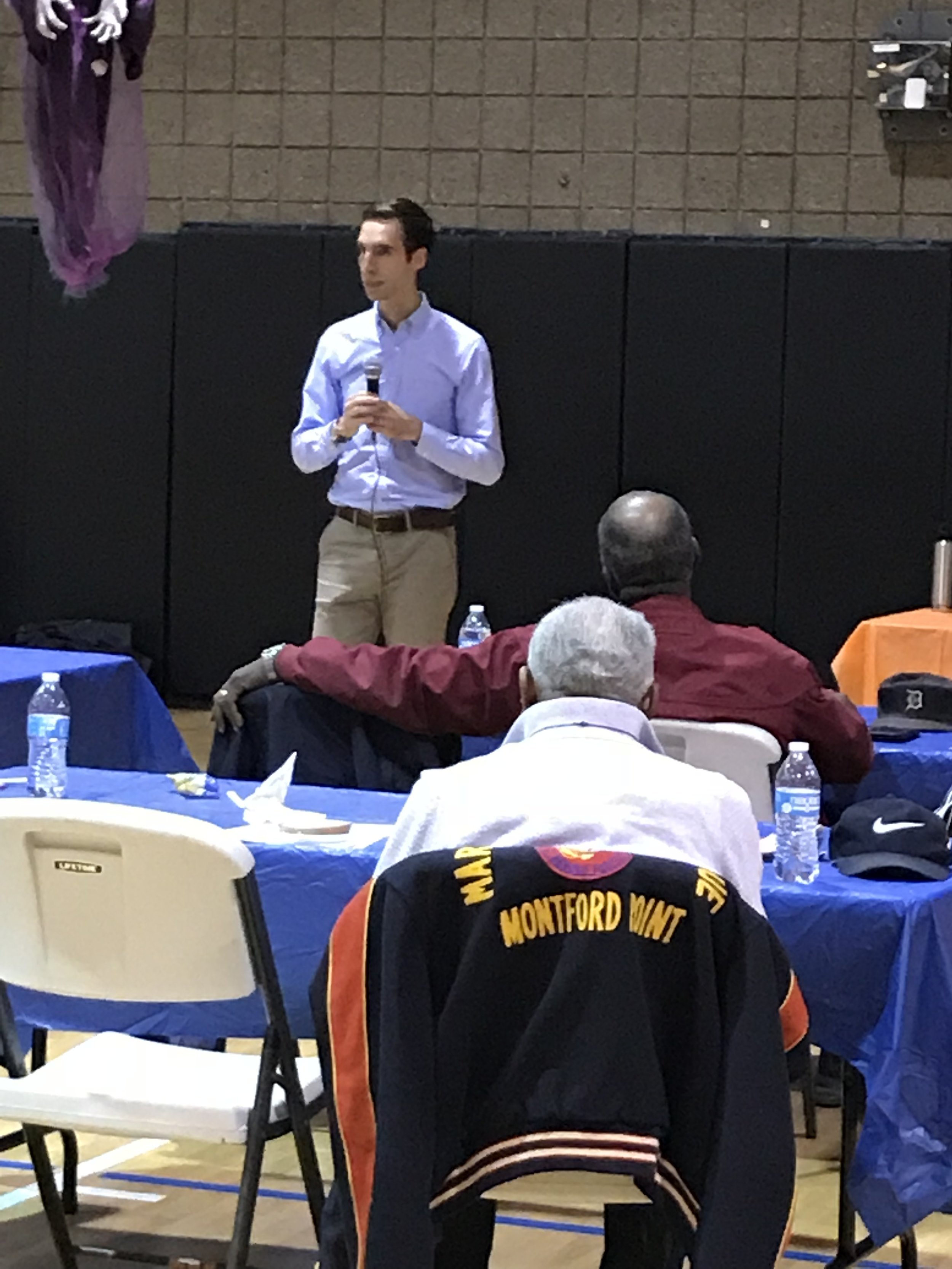Plum Health Blog
How You Can Save Money on Your Next Prescription Refill in Detroit
Why Do Generic Medications Cost So Much Money?
There's a wide variability in the cost of generic medications from pharmacy to pharmacy. Researchers at Saint Louis University surveyed 175 pharmacies and asked for their prices for the meds Lisinopril, Carvedilol, and Digoxin. These are common heart failure medications.
The researchers found that the prices for three generic medications ranged from less than $20 to more than $150, with the highest price for all three medications being $397 for a 1 month supply!
This is way too much money. If you spent $150/month on medications alone, it would cost $1800 for the year. In contrast, if you spent less than $20/month on these same medications, it would cost less than $240 for the year.
This is a difference of $1,560.
Unfortunately, these costs have the greatest adverse effect on low income communities because they may not have the transportation resources to drive to these less expensive pharmacies. In Detroit, 33% of residents do not have access to reliable transportation, leaving these folks to the potentially higher costs pharmacies in lower income neighborhoods.
Middle Men and How They Inflate the Cost of Your Care
First of all, understand that when you buy medications from a retail pharmacy, you will likely incur a retail markup on your medications. This markup can be 10%, 50%, 100%, 300% or more, as illustrated in the Saint Louis University study cited above. So, shop around and find the best price before setting foot into your neighborhood pharmacy.
The next thing that inflates the cost of your prescription medications are middle men, namely pharmacy benefits managers. These PBMs are supposed to negotiate the formulary (or the medications covered by your insurance company) and their related costs at the local pharmacy. However, the system is full of self-serving PBMs who make more money based on inflating the costs of your medications.
To illustrate, you should be familiar with the term “clawback.”
A “clawback” happens when the patient's copay is more than the pharmacy's cost for the drug. For example, if a customer's prescription copay is $20 but the pharmacy's cost is $5, the PBM claims -- or “claws back” -- the extra $15, which it keeps as profit.
That’s right - if your son or daughter has strep throat, and you want to buy Amoxicillin, and the cash price is about $5, as it should be, but the PBM “negotiated” the price to be $20, and you buy that Amoxicillin with your insurance, you’d pay $20 for the $5 medication and the PBM keeps the difference.
Infuriating, I know! I’m just as mad about this issue as you are.
How You Can Save Money on Your Next Prescription Refill
So, how can you save money on your medications? First, ask around for the best price at different pharmacies. If your insurance-based price is too high, ask your pharmacist for the cash price. Only until recently, pharmacists had a gag order, where they couldn’t tell you the price of the medication if it was cheaper than the “negotiated” insurance-based price.
Another possible solution is Direct Primary Care. DPC doctors like myself buy medications at wholesale prices and give them to our patients at cost, or with a 10% mark up to cover the cost of shipping and handling. For example, at our clinic Plum Health DPC, we can wholesale these same three medications for about $18/month.
I created this video to more fully explain what I mean, see below.
- Paul Thomas, MD
If you’d like to be a part of our direct primary care service at Plum Health in Detroit or Farmington Hills, Michigan, you can sign up, here:
The Shocking Reason Why Health Insurance Premiums Continue to Rise
This year, I had the opportunity to speak at TEDxDetroit. At first, I struggled with what to say, other than I’m grateful for the platform and the opportunity. But, I realized that it was important to discuss the outrageous increases in health insurance costs for the average American family.
The Way Rising Health Insurance Costs Affect the Take Home Pay of Americans
The average family in the United States paid about $3,500 for employer-sponsored health insurance coverage in 2009 and that amount of money ballooned to about $6,000 in 2019.
What’s even worse is that employers were spending $9,860 per employee in 2009 to administer those health insurance plans, and in 2019 they’re paying $14,561 for those same health insurance plans.
All of this money spent on Health Insurance costs is a huge detriment for our national economy and for the paychecks of individual Americans. Imagine if health insurance costs were the same today as they were in 2009, each American family would have an extra $10,000 in wages from their employer. Instead, that extra $10,000 is spent on health insurance costs.
The Reason Why Health Insurance Costs Continue to Rise in the United States
Let’s start by discussing the 80/20 rule in the Affordable Care Act (ACA). The ACA set forth some well-intentioned provisions. Here’s what HealthCare.gov has to say about this 80/20 rule:
The 80/20 Rule generally requires insurance companies to spend at least 80% of the money they take in from premiums on health care costs and quality improvement activities. The other 20% can go to administrative, overhead, and marketing costs. The 80/20 rule is sometimes known as Medical Loss Ratio, or MLR.
According to the American Economic Association: “Rather than lower premiums, insurers searched for other ways to come into compliance. Initially, there were efforts to relabel some administrative costs as “quality improvements”—like lobbying to count spending on nurses’ hotlines as part of the 80 percent. But the easiest route to meeting the requirement was simply to let medical claims increase. That companies opted to do this, instead of lowering premiums, didn’t come as a surprise”
Within that 20% of administrative, overhead, and marketing costs, insurance companies have their profit margin. Therefore, the more money spent on insurance claims, no matter how bogus, the larger the profit margin becomes for the insurance companies.
Increased Health Care Spending on Inflated Health Insurance Claims
This brings me to the glaring example of inflated health care costs based on questionable medical care and out-of-network billing. In December 2019, I heard about the $25,865 throat swab that Blue Cross Blue Shield of Minnesota paid for. The gist of the story, from NPR’s Bill of the Month series, is that a woman in Manhattan went to a doctor for a sore throat, received a throat swab, and was given an antibiotic.
Because the throat swab was processed by an out-of-network lab, the cost of the throat swab was $25,865.
First of all, a good primary care doctor can develop a trusting relationship with a patient, obtain a history of the illness, and perform a physical exam for 99% of viral or bacterial throat infections or cases of pharyngitis. In other words, a throat swab is NOT NEEDED in 99% of pharyngitis cases.
Second, the fact that the insurance company paid for this $25,865 throat swab is insane. The reasonable cost for a throat swab like this might be $100 to $500, no $25,865. If I ran the insurance company, I would be calling the out-of-network lab’s bluff here and they’d be paid a reasonable $500 at most.
However, as discussed above, the more money insurance companies spend on health care or medical losses, the more profits they’re able to rake in due to the 80/20 rule in the affordable care act.
That’s why we’ve seen our health care spending increase from $2.5 Trillion in 2009 to $4.01 Trillion in 2020.
We must end these insane health insurance practices before it further affects our earnings and our Nation’s economy.
Thanks for reading and thanks for watching my TEDxDetroit talk,
-Dr. Paul Thomas with Plum Health DPC in Detroit
Plum Health Office Vandalized, but we will continue to serve
Plum Health Office Vandalized
Saturday, our medical office was vandalized by a man with a can of spray paint.
This is an unfortunate event, but it doesn’t define who we are. We are a family medicine practice and we believe that health care should be affordable and accessible. We exist to actively lower the cost of healthcare for our neighbors in Detroit and beyond. We are successful because we’ve met an unmet need in the community and we’ve been embraced by people in the community.
In response to seeing the vandalism on Twitter, I replied in a tweet: “While we respect your right to protest, and we agree with the reasons why you’re protesting, please don’t vandalize the office where we lower the cost of healthcare for Detroit residents #PlumHealth.”
On Sunday, we’ll wash off the graffiti and on Monday we’ll continue to see our patients and continue to serve our community. Paint washes off easily, but the journey to justice in our country and the healing of racial injustices will take more intentionality and sustained effort.
Thanks for reading, and have a wonderful day.
-Paul Thomas, MD
P.S. Some people have reached out and asked how they can help. Here’s a few ways:
work towards making our community better, safer, and kinder. There are so many Detroit-based non-profits and groups that you can volunteer with or donate to, and many of them have been devastated by the Coronavirus. Here’s a few of my favorites:
Grace in Action - a network of youth-run collectives and worker-owned cooperatives rooted in Southwest Detroit
the Downtown Boxing Gym - providing Detroit youth with educational and physical activities (I volunteered with them as a ring-side Doctor)
the Detroit Historical Society (they did a fantastic exhibition on Detriot ‘67)
Eii (equitable Internet Initiaitve of Southwest Detroit address digital justice), a smaller initiative, is working hyper locally to address the gap in access to information
join the protests and ensure that they remain non-violent and non-destructive.
If you’ve used our service in the past, or believe in our mission of delivering affordable, accessible healthcare, you can leave us a review, here.
If you want to be a part of our service or if you want to sponsor a family member or a friend who needs this type of medical service, you can sign up, here.
Dr. Paul Thomas' Statement on George Floyd
This week has been a tumultuous week for our communities and our country. I’m proud to be an ally to those who face racial injustice and race-based discrimination and violence.
The vast majority of people were supportive of the post, but there were some negative comments. One person on Facebook said: “This was a terrible event. Likewise, Dr Thomas, there is no professional reason for you to comment on this.”
In response, I said “I respectfully disagree. I serve a diverse group of patients, some of whom have been exposed to trauma that can negatively affect their health outcomes. By communicating my understanding of these realities, I aim to help others and support those who've been affected by traumatic events like this. https://pubmed.ncbi.nlm.nih.gov/29019632/”
Thanks for reading,
-Dr. Paul Thomas
Trashtag Challenge at Plum Health DPC
On Monday, April 22nd, it was Earth Day, and last month we contributed by completing the Trashtag Challenge! The Trashtag Challenge is where you get a bunch of your friends, neighbors, colleagues, or classmates and get outside and pick up as much trash as possible, taking before and after pictures to document the process.
When the snow melted in March, it revealed a ton of trash in our parking lot, which was not appreciated. I went out with my friend and colleague, Rob, and we absolutely destroyed a patch of refuse and debris.
But, there was still more work to be done, and we went out with a group of about 12 more people and cleared out more trash from the parking lot and surrounding areas. This is really important because trash and what we do with it has a big impact on our community and our health. Trash and its presence, or absence, impacts the way that we feel about our community.
Paul Thomas MD with a group of students from the Detroit School of Digital Technology, cleaning up trash from our parking lot at 1759 21st Street, Detroit, MI 48216.
There was a bunch of trash beforehand, but we got it done - many hands make light work! This is the Plum Health DPC and DSDT crew cleaning up our shared parking lot and completing the Trashtag Challenge.
I’ll close this with a challenge - can you get a group of people together and clean up a small patch of your community?
Thanks for reading and have a great week! - Dr. Paul Thomas with Plum Health DPC
Paul Thomas MD on the DocPreneur Podcast
This week, we were featured on the DocPreneur Podcast, which is created and distributed by Michael Tetreault, Editor-in-Chief of the Direct Primary Care Journal. After publishing the book, Direct Primary Care: The Cure for Our Broken Healthcare System, Michael reached out about having me on the podcast.
I’m sincerely happy to share my experiences in Direct Primary Care, to teach and inspire other doctors to take this journey to an authentic, fulfilling practice of medicine, to become the doctors they were meant to be. This is one of the biggest reasons why I continue to get the word out about Direct Primary Care - I believe in this model and its ability to transform our healthcare system in the United States.
I want to personally thank Michael Tetreault for being on the vanguard of Direct Primary Care by creating educational materials for DPC doctors. Enjoy the podcast, and let me know what you think!
Thank you for reading, watching, and listening,
-Dr. Paul Thomas with Plum Health DPC
To read our book on Amazon, click this link.
Paul Thomas MD Speaking at Michigan State University
This week, I was invited to speak at Michigan State University College of Osteopathic Medicine regarding Direct Primary Care. It was a neat experience because the school has three campuses and my lecture was simulcast to the other two campuses. I spoke at the Detroit location (did you know that Michigan State University has a medical school campus in Detroit?) and the talk was broadcast to the East Lansing and Macomb campuses.
The lecture was an hour, and in the first 45 minutes I discuss the current crisis in primary care, I define Direct Primary Care, and then I give real-world examples of how Direct Primary Care is working in our clinic in Southwest Detroit. During the last 20 minutes, I answered as many questions as I possibly can.
I love speaking with students about our healthcare system and about Direct Primary Care because I see the lightbulb go off - I see them ‘get it’ and understand the model and why it works well. I love witnessing that moment - the “aha” moment.
A few students bought my book about Direct Primary Care after the event and the pictures below are of me signing the book. Thanks for reading and have a wonderful day.
-Dr. Paul Thomas with Plum Health DPC
Get your copy of the book, Direct Primary Care: The Cure for Our Broken Healthcare System
Signing a book for one of the Michigan State University College of Osteopathic Medicine Students.
Dr. Paul Thomas MD of Plum Health DPC signing the book, Direct Primary Care: The Cure for Our Broken Healthcare System after a speaking engagement at Michigan State University College of Osteopathic Medicine in Detroit, Michigan.
Dr. Paul Thomas at the Future of Family Medicine Conference
Last month, I had the opportunity to speak with over 100 students and residents interested in the specialty of Family Medicine. This was at the aptly named “Michigan Future of Family medicine Conference” hosted by the Michigan Academy of Family Physicians. The event was held at Michigan State University and hundreds of students were able to attend on a Saturday morning in October.
The invitation for the fifth annual Michigan Future of Family Medicine Conference, hosted by Michigan State University and the Michigan Academy of Family Physicians (MAFP).
For students, it can be hard to get excited about the future of Family Medicine. Family Physicians work long hours, have to deal with tons of insurance bureaucracy and red tape, and earn less than their colleagues in other specialties. It can leave students deflated.
Dr. Paul Thomas of Plum Health DPC speaks at the Michigan Future of Family Medicine Conference 2018 Panel on Career Options, taken from the Michigan Academy of Family Physicians’ (MAFP) twitter account, here: https://twitter.com/MIFamilyDocs/status/1051106817705725953
However, I find that when I speak about Direct Primary Care and the opportunities that a DPC model of care can provide, students are energized and excited about the future of family medicine. You see, Family Medicine Doctors have the most tools in their tool set and can have the biggest impact on the community level - we lower admission rates to hospitals and decrease the cost of care for our patients. We also lower the rates of disease and death rates from disease.
But, as mentioned previously, Family Medicine is less desirable from the student’s perspective as it pays less and is a difficult job because of insurance hassles.
I think our profession, Family Medicine, is at a real moment of crisis, but also at a crossroads for opportunity. We can continue to be a part of the healthcare industrial complex, billing and coding, racking up charges on our patients, or we can adopt the Direct Primary Care model and serve our patients and our community with affordable and accessible health care services that are more just and compassionate in their delivery.
That’s my message, I’m glad to have had the opportunity to share it, and I’m very happy to have seen it resonate with so many energetic and eager medical students and residents.
Thanks for reading, and have a wonderful day,
-Dr. Paul Thomas, MD with Plum Health DPC, a Direct Primary Care service in Southwest Detroit
Dr. Paul Thomas of Plum Health DPC speaks at the Michigan Future of Family Medicine Conference 2018 Panel on Career Options, taken from the Michigan Academy of Family Physicians’ (MAFP) twitter account, here: https://twitter.com/MIFamilyDocs/status/1051097050086035456
I had the pleasure of speaking to an audience of over 100 + Medical Students and Medical Residents at the Michigan Future of Family Medicine Conference in October 2018. I shared the stage with Dr. Sheala Jafry, Dr. Fatin Sahhar, and Dr. Amy Keenum. The event was held at Michigan State University and hosted by the Michigan Academy of Family Physicians (MAFP).
Paul Thomas MD of Plum Health Receives the Vanguard Award
Last night, I had the incredible honor of receiving the Detroit Young Professionals Vanguard Award for our work with Plum Health DPC in Southwest Detroit. We believe in providing affordable, accessible health care in Detroit and our mission is resonating with people in the greater Detroit community. These sort of awards are meaningful in that they can bring greater attention and awareness to those underserved by our current health care system.
Thank you for reading, - Dr. Paul Thomas with Plum Health DPC
Plum Health serves a Health Professional Shortage Area
Plum Health serves a Health Professional Shortage Area, and we’re proud to do this. Part of our mission is to deliver affordable, accessible health care services in Detroit and beyond. This is important because we are passionate about making health care available to communities that have been traditionally neglected by the existing medical system.
Unfortunately, doctors and hospital systems choose to locate their practices in neighborhoods and communities that have higher income levels and higher rates of private insurance coverage. You see, doctors in the current fee-for-service system only receive what they are paid by third party payers, like Medicare, Medicaid, and private insurance companies.
And some of these payers pay more for services than others. For example, Medicaid reimbursement is much lower than Medicare reimbursement or Private Insurance reimbursement. This really hurts Detroit as a greater proportion of Detroiters rely on Medicaid for health insurance relatives to other counties in our region.
Therefore, the current fee-for-service system incentivizes doctors to locate their practices in higher-income communities, and thus leaves lower-income communities medically underserved. As an example, the ratio of primary care physicians to general population in Detroit is roughly 1 primary care physician for every 6,300 residents. In Oakland county, there’s about 1 primary care physician for every 683 residents.
Below are the medically underserved areas in Detroit as of 2017. We are proud to be practicing in the Southwest Detroit/Corktown neighborhoods and serving our neighbors, community members, and small businesses with high-quality medical services.
Thank you for reading and understanding this important issue,
-Dr. Paul Thomas, MD with Plum Health DPC in Detroit, Michigan
More on the above map: Health Resources and Services Administration (HRSA), a Federal Agency, develops shortage designation criteria to determine whether a geographic area, population group or facility is a Health Professional Shortage Area (HPSA) or a Medically Underserved Area/Population (MUA/P). HPSAs may be designated as having a shortage of primary medical care, dental or mental health providers. They may be urban or rural areas, population groups, or medical or other public facilities. MUAs may be a whole county or a group of contiguous counties, a group of counties or civil divisions, or a group of urban census tracts in which residents have a shortage of health services. MUPs may include groups of persons who face economic, cultural or linguistic barriers to health care.
Additional information on Medicaid rates in Wayne county, take from MLive:
I had a blast speaking at the AAFP Direct Primary Care Conference
I cannot tell you how much fun I had speaking at the AAFP DPC Conference, I loved it this much:
Dr. Paul Thomas speaking about Branding and Marketing your Direct Primary Care practice at the American Academy of Family Physicians Direct Primary Care Conference in Indianapolis, Indiana.
Seriously, I had an amazing opportunity to speak directly with my Direct Primary Care colleagues about Branding and Marketing your Direct Primary Care practice at the American Academy of Family Physicians Direct Primary Care Conference in Indianapolis, Indiana.
I believe that our family physicians are the backbone of the health care system in America, and I am encouraged and enthused by their willingness to step into their own power and create ideal practices that optimally serve their individual patients and their greater communities.
I'm all in on helping my colleagues create their best practices and to become the doctors they were meant to be. One of the biggest challenges that doctors face is in the realms of branding and marketing as most family physicians have little or no training in these areas.
What I conveyed in my lecture was how to create a brand, engage in branding your practice, and actively market your practice. I'm posting about this again because I'm that amped up and because the lecture is now live on the AAFP website, here.
Thanks for reading and for watching! Below are some bonus screenshots from the talk. If you're an individual looking for this type of care for yourself, your family, or your employees, please call me at 313.444.5630 or send me an email at paul@plumhealthdpc.org. If you're a DPC doctor and you need help branding and marketing your practice, reach out to me because I'm happy to help.
Sincerely,
- Dr. Paul Thomas, MD, physician with Plum Health DPC in Southwest Detroit
How to Find the Best Prescription Drug Prices in Detroit
As many of us are aware, the price of prescription drugs can be astronomical. People are paying for a retail markup at pharmacies, often paying 10 - 20 times as much as the drug actually costs at wholesale. Even worse, insurance companies often charge more for medications purchased via your insurance plan than the medication would cost if you bought it at the cash price.
Why is this important to me? I'm a Family Doctor in Southwest Detroit and I took an oath to do no harm, and for me that oath also includes doing no financial harm. So, I am focused on lowering the cost of health care for my patients and the greater community.
How to find the best prescription drug prices in Detroit
If you're like many people, you probably go to the pharmacy with your Rx card or prescription card from your health insurance company. You then have the pharmacist 'run the card' to find out if you get a discount when you purchase medication.
What you should do instead is ask the pharmacist, "what is your cash price for this medication?" Also, you can ask for any coupons that the pharmacist might have. If you are dissatisfied with the price, then pull out your insurance card and ask for them to 'run the card'. This will ensure that you have a fair price point to start from.
In addition, you can shop around for the best prescription drug prices in Detroit or in your local community by comparing prices online. Using tools like GoodRx.com can help you find the exact price for the medication you need.
Using Direct Primary Care to Lower Drug Prices
There is another option to find even lower prescription drug prices. That option is called Direct Primary Care. In the Direct Primary Care model, doctors aim to provide as much value as possible for patients' health care dollars. In simple terms, we DPC doctors try to lower the cost of health care.
What does this look like? It looks like 70% - 90% savings on prescription drug prices in Detroit and the Metro Detroit Area. Just check out this chart and see for yourself the actual, wholesale cost of the medication compared to the price you would pay at the pharmacy with the retail pharmacy mark up, or the inflated price.
Original image taken from Consumer Reports.
How do we do this? At Plum Health DPC, we buy the medications at a wholesale price and then we sell them to our patients at-cost. This means if we buy a bottle of 1000 blood pressure medications at $10, each pill costs 1 cent. Then your monthly prescription cost for that blood pressure medication is 30 cents.
In the above example, we are able to get Pioglitazone (Actos) for $4.30 per month, Celecoxib (Celebrex) for $6.47 per month, Duloxetine (Cymbalta) for $7.04 per month, Atorvastatin or Lipitor for $2.09 per month, and Clopidogrel or Plavix for $4.28 per month. The total monthly cost would be $24.18 for our patient, and that is a huge cost savings compared to the nearest retail pharmacy.
By lowering the cost of medications, we can improve access to primary care services, better control blood pressure and diabetes, and therefore decrease the risks of heart attacks, strokes, and complications of diabetes in our community. This will lead to lower rates of disability and death, or a healthier society.
We are proud to make a difference in this way. Thank you for reading and learning about the cost of prescription drugs, and let me know if I can help you or a family member lower the cost of health care.
Sincerely,
- Dr. Paul Thomas, MD with Plum Health DPC
How is Plum Health Making an Impact?
Family Medicine Doctor Reaching Out in Detroit
Dr. Paul Thomas speaking to elementary school students at Munger Elementary/Middle School on Detroit's West Side during Career Day.
This week, I engaged in two outreach events, one at Munger Middle Elementary/Middle School on Detroit's West Side and one at the Northwest Activities Center in NW Detroit. The first event had me speaking to a group of about 30 elementary school students, sitting cross-legged on a gym floor. We talked about what it takes to become a doctor, the dreams that they had for their futures, and the steps that it would take to achieve those dreams. They even made me a nice gift for coming out - a small paper doctor.
Dr. Paul Thomas at Munger Elementary/Middle School on the West Side of Detroit.
The event at the Northwest Activities center had me speaking to about 100 senior citizens who had innumerable questions about health and wellness. They asked me about everything from high blood pressure, to diabetes, to nutrition, exercise, arthritis, and declining cognitive function. Also at this event, the community had organized fresh food distribution.
Dr. Paul Thomas at the Northwest Activities Center in NW Detroit after speaking to a group of senior citizens about health and wellness.
Both were inspiring in different ways, and also showed how we can make a big impact by reaching out to the community and educating people from elementary age to senior citizens. I think a lot about impact, and how we're making a positive impact in the community, and I wanted to share an essay I wrote earlier this month:
How a Family Doctor Makes an Impact
The problem that I am solving is access to affordable medical care, not just for individuals, but also for small businesses and communities. On the individual level, I cannot count the number of people who have presented to our clinic to establish care with a family doc for the first time in years, sometimes even decades. They feel comfortable because the price point is understandable, services and charges are transparent, and we've created a welcoming environment for all people.
I’ll give the example of the lifelong Detroit resident who had a uncontrolled blood pressure, who avoided medical care because the cost was simply too high. She signed up for a membership with us, and we are managing her blood pressure with medication that costs under $2/month. She is now at goal, and cried in our office after reaching this critical threshold.
Next, we’re solving a big problem for small businesses. Small business owners want to provide services and benefits that will help them attract and retain employees, and often times traditional health insurance products are financially out of reach. Rather, they choose to provide Plum Health and our health care services for their employees: an affordable product that’s understandable and easy to access for their workers. We are now seeing small businesses that are proud to offer our service as a benefit to their employees as a mean of attracting and retaining talent.
Finally, we’re solving the problem of neighborhood-based primary care services in Detroit, a city that is critically underserved from a primary care perspective. There are fewer than 100 primary care doctors in the City of Detroit, equating to roughly 1 doctor for every 6,300 residents. We are meeting a significant need in our Southwest Detroit location by serving a community that otherwise would not have access.
Thanks for reading, and have a wonderful day,
- Dr. Paul Thomas with Plum Health DPC in Detroit, Michigan
Plum Health on Bonfires of Social Enterprise
Last month, I had the pleasure of being interviewed by Romy Kochan on her podcast, Bonfires of Social Enterprise. Bonfires of Social Enterprise is focused on highlighting social entrepreneurs and we were happy to be featured on this podcast!
I believe that Plum Health DPC is a social enterprise because we not only focus on growing the business in a traditional sense (revenue, profit & loss, etc...), but we also focus on making a positive impact in the community by providing a medical service that is much needed the SW Detroit community.
Romy was a great interviewer and made me think differently about my own practice, prompting me to say something I've never said before. She asked if I could dream big, and envision a future for what I'm doing, what could this look like?
I responded by saying, "I think this could look like a nation where we get rid of these old notions of what 'good health care' looks like, and starting to realize that it doesn't look like a piece of plastic in our wallet. It looks like a relationship with someone in our community that is a healer, that can listen, and has time to address your concerns".
The conversation had a broad scope from how we got started, to the impact we're having, to the reaction to our service from the community. Here's how Romy describes it:
We’re back with another episode here on social enterprise. We have a doctor on this show who has been making a big impact in Detroit. It is Dr. Paul Thomas of Plum Health Care DPC. He has a dream of changing the notion of health care from a plastic card in your wallet to true healing from a healing doctor! What a concept!
This was a wonderful interview and I am so grateful to Romy Kochan for having me on her podcast. Check out the full episode here, and have a healthy week!
- Dr. Paul with Plum Health DPC
PS: you can find this episode on the podcasting platform of your choice:
PRX.org (Public Radio Exchange)
PPS: Follow us on Instagram!
A Sample of Lab Test Cost Savings
A friend posted this image on Facebook with the notation: "thank God for health insurance".
While it's important to have health insurance, it's also important to understand how it inflates and distorts prices for health care. In the above photo, the insurance price for laboratory testing is shown clearly. What's interesting is if these labs were obtained through our clinic, they would have cost a fraction of the amount reported. Here's a test by test comparison:
A comparison of lab costs between typical insurance billing and our prices at Plum Health DPC
What's crazy here is that the person is being billed at a 765% mark-up from the actual cost of the service. This is why health care in America is so much more expensive - hospitals and health care providers dramatically mark up costs and then 'discount' these costs for insurance companies.
This price 'gamesmanship' is bad for health care consumers. It's bad for folks with insurance and even worse for folks who are uninsured. For example, if this person had 80/20 insurance coverage for these labs, they would end up paying $162.20 - the insurance company would 'pay' $658.80 or 80% and the insured person would pay the remaining 20% of costs or $162.20.
However, if this person were uninsured, they would bear the full brunt of these charges. The uninsured person would pay the entire $811 for labs that actually cost $106.
Thanks for reading, and have a great day,
- Dr. Paul Thomas with Plum Health DPC
Plum Health DPC Mentioned in Business Insider
This week, I was delighted to see Plum Health DPC mentioned in two different publications. The first was an excellent, comprehensive piece on Direct Primary Care in Business Insider by Lydia Ramsey.
Ms. Ramsey and I have spoken over the phone about the Direct Primary Care movement, and she asked several insightful questions about our practice in Detroit, Michigan. She has spoken with roughly 16 other DPC doctors and synthesized a great summary of the movement in her article.
I loved the chart she used to compare and contrast traditional Fee-For-Service medicine with Direct Primary Care services:
Next up, we were mentioned in the South Florida Sun-Sentinel article on Direct Primary Care written by Ron Hurtibise. The article discusses Direct Primary Care and the efforts in the Florida Legislature to make DPC 'legal' in that state.
Fortunately, in Michigan, Direct Primary Care has been 'legalized' via the efforts of State Senator Patrick Colbeck and his Senate Bill No. 1033. I have placed legal and legalized in quotations above because practicing Direct Primary Care or retainer-based medicine is not illegal, but having laws on the books like Senate Bill No. 1033 in Michigan and the proposed HB 37 in Florida removes any potential legal challenges and allows doctors who want to practice DPC medicine a clear path.
And we need more doctors having a clear path to the type of medical practice that they can enjoy and sustain for the long term. We need more doctors practicing primary care medicine. One of the arguments against DPC is that the panel size is smaller in the typical DPC practice as compared to the traditional Fee-for-Service practice. In the Sun-Sentinel article, a part of my LinkedIn article was quoted:
"As to the charge that Direct Primary Care contributes to the shortage of primary care doctors, Paul Thomas, a doctor with Plum Health DPC, wrote in an essay published on LinkedIn.com last year that the model might actually encourage more medical students to become primary care doctors, rather than pursue higher-paying specialty fields.
"A Direct Primary Care practice with 500 members can provide a primary care provider with more income than some earn with 3,500 patients at a fee-for-service practice, Thomas wrote. And the increased time for personal interaction eliminates “role strain” and allows the provider to address patients as whole people, he said.
I believe that Direct Primary Care practices provide physicians and patients with a better primary care experience, and will allow doctors to practice for longer periods of time without retiring early or leaving the field completely because of burnout. I'm happy to see the DPC movement spreading across the country, and I'm happy to be quoted in these two publications.
Thanks for reading!
- Dr. Paul Thomas with Plum Health DPC
Guy Gordon Discusses Direct Primary Care on WJR
Today, Guy Gordon and Senator Patrick Colbeck discussed Direct Primary Care and the potential impact that it can have on the health and wellness of Michigan residents as well as the sustainability of the Michigan economy. The discussion was held on WJR News Radio (AM 760).
My name is Paul Thomas, M.D. and I am a family medicine doctor practicing in Southwest Detroit. I believe that healthcare should be affordable and accessible for everyone. I also believe that we can achieve this goal through direct primary care medicine.
It is a dream of mine to see and help more family doctors and primary care physicians transition from the fee-for-service model of healthcare to the direct primary care model. This will allow more doctors to deliver compassionate, truly patient-centered care with transparent pricing in our great state of Michigan.
To this end, I will be speaking at the Michigan Academy of Family Physicians statewide conference in mid July in Kalamazoo, Michigan about this very topic.
Thanks so much for reading and watching, and have a wonderful day!
– Dr. Paul Thomas, M.D.
Last Day For Open Enrollment
Hello all! It's December 15th and the last day to sign up for health insurance. Health insurance is different from Health Care. What I provide at Plum Health DPC is health care - visits with the doctor, wholesale medications, at-cost labs, convenience, etc...
But you also need health insurance - this is a financial tool to protect you from bankruptcy in case of major accidents, illnesses, or injuries. If you have cancer, a heart attack, a stroke or are involved in an auto accident, you need health insurance to cover these costs.
The best way to get health insurance? Go to HealthCare.gov and choose a plan that's right for you.
Thanks for your time, thanks for reading and watching! And, sincerely, if you need help with this, give me a call!
- Dr. Paul 313.444.5630
Healthy Aging in Detroit
Let me tell you about one of my favorite things: educating people in the community about how they can be healthier.
Today I was invited to the Earnest T Ford Recreation Center at 10 Pitkin Street in Highland Park to speak with a group of older men. They had questions and concerns about their health and their health care, and it was a pleasure speaking with them.
This group of senior citizens wanted to know how they could better their lives, and they peppered me with as many questions as they could think of, and I loved it. I love sharing my knowledge as a practicing family medicine doc with the people in my community.
I especially enjoyed seeing the 'aha!' moments when things started to click with those men in my audience. We talked about high blood pressure, diabetes, erectile function and dysfunction, the aging brain, exercise, osteoporosis and bone health, and the connections between these conditions. Below are some pictures from the event!
Thanks for reading, and have a wonderful day,
- Dr. Paul Thomas with Plum Health in Detroit, MI
Don't Further Entrench an Already Broken System
Dear Congressional Representatives, Leaders in the AAFP, and all of those concerned with improving the health of Americans,
I’ve recently become aware of a part of the Alexander-Murray health reform bill that is concerning for the Direct Primary Care (DPC) movement, my practice and the patients that I care for in Southwest Detroit.
The bill includes a provision that mandates all High Deductible Health Plans cover an allotted primary care benefit. As written currently, the Alexander-Murray bill will cover “3 office visits per year” but many organizations, including the American Academy of Family Physicians (AAFP), are pushing to expand that.
While this may sound like a nice perk for patients, it only further traps patients and their primary care doctors in a broken system that undervalues primary care. It reinforces the notion that government and insurance companies must micromanage our dollars and decisions.
Forcing patients to pre-pay for a “primary care benefit” with no out-of-pocket costs will have a few detrimental effects. First, it will almost certainly increase the up-front costs of already skyrocketing health insurance plans. It will also dissuade patients from taking a proactive approach to managing their own health and health care, instead pushing them to be managed by an insurance plan or government programs. Finally, this pre-paid primary care benefit will discourage people from joining Direct Primary Care Practices, a promising practice model that is already achieving the quadruple aim: improving population health, increasing patient satisfaction, reducing per-capita health care spending, and improving physician and staff satisfaction while practicing medicine.
Furthermore, the Alexander-Murray bill fails to address the Health Savings Account (HSA) issue with regards to Direct Primary Care membership fees, something that my DPC doctor colleagues and I have been advocating for over the last few years.
My recommendation at this time would be to advocate for the Primary Care Enhancement Act (SB 1358), which would address the above HSA issue and not further entrench an already broken primary care delivery model.
In closing, Direct Primary Care is an innovative health care delivery model that has promise for achieving the quadruple aim on a nationwide basis. There are nearly 1,000 primary care doctors already practicing or on the cusp of engaging in this model. This is an opportunity to help us grow this DPC movement, to help us better serve our patients in this innovative way, and to potentially heal a broken primary care system in America. Help us reach our goal.
Thank you for your time and consideration,
- Dr. Paul Thomas, MD with Plum Health DPC in Detroit, Michigan


















